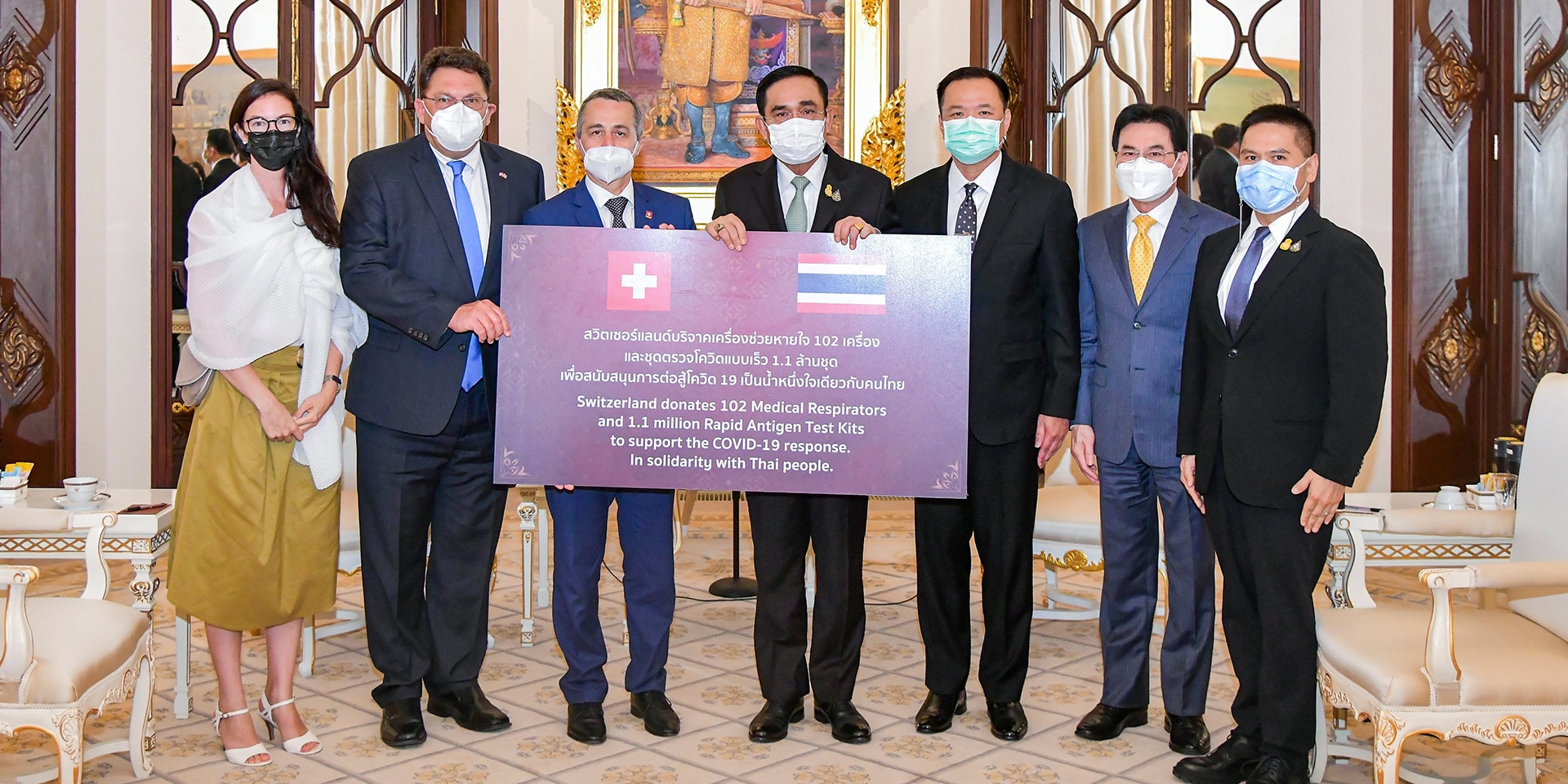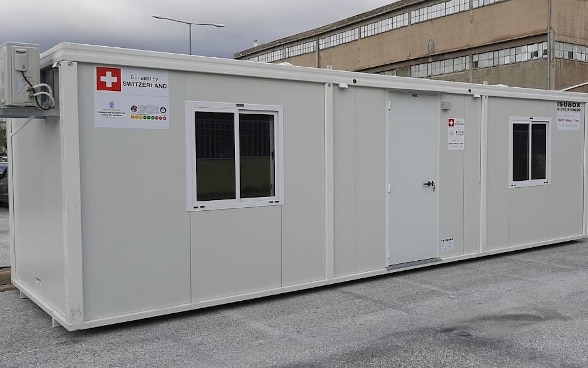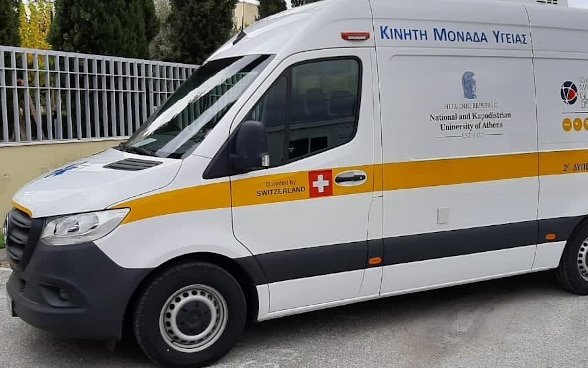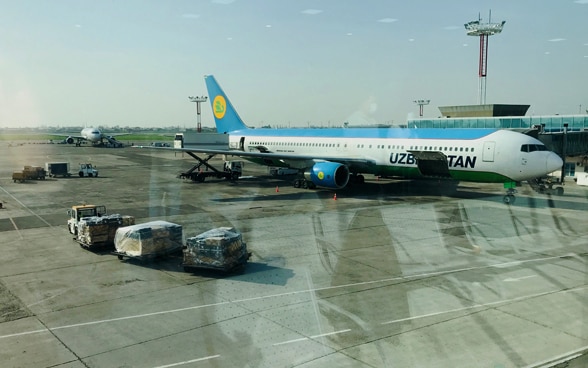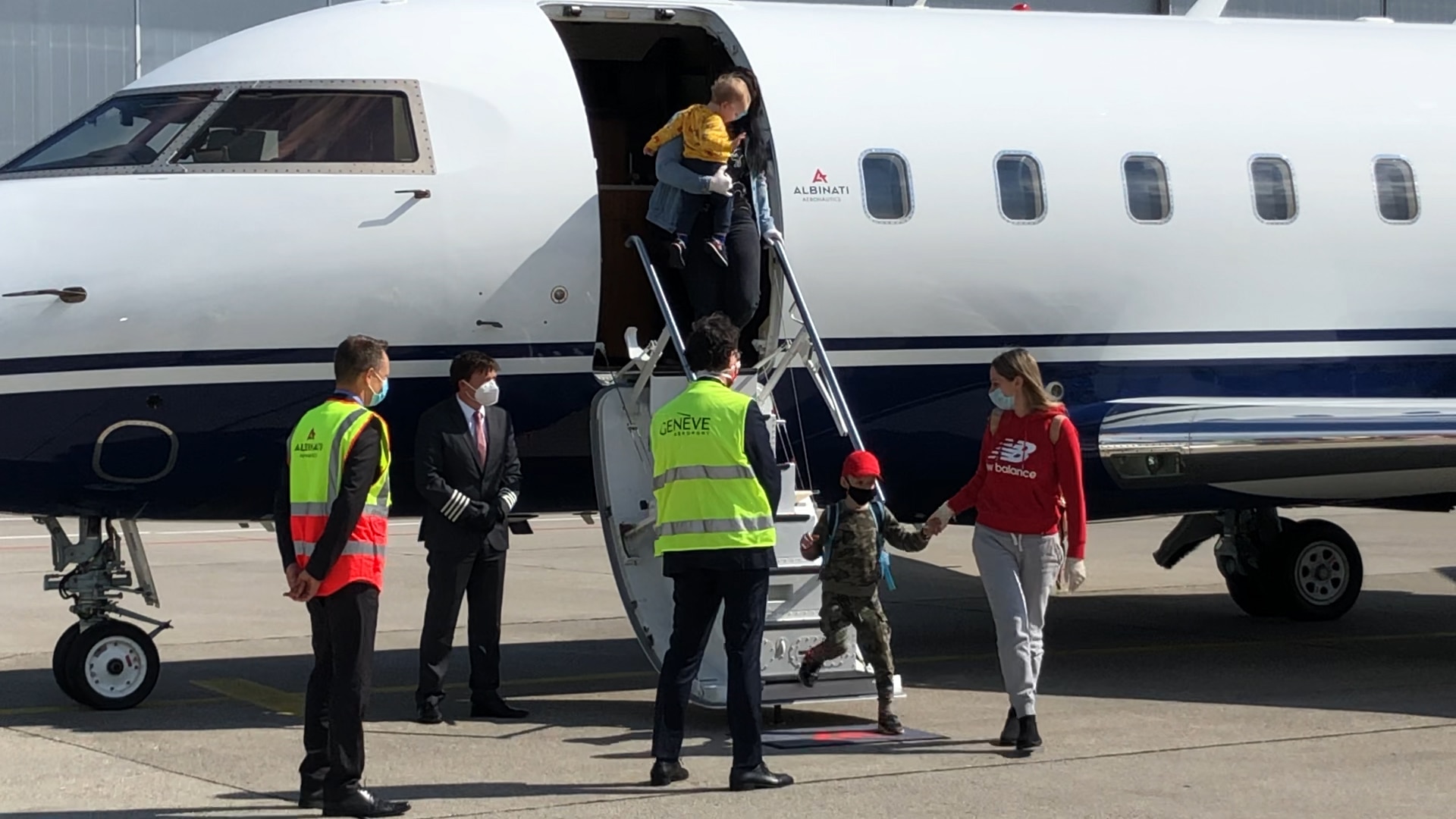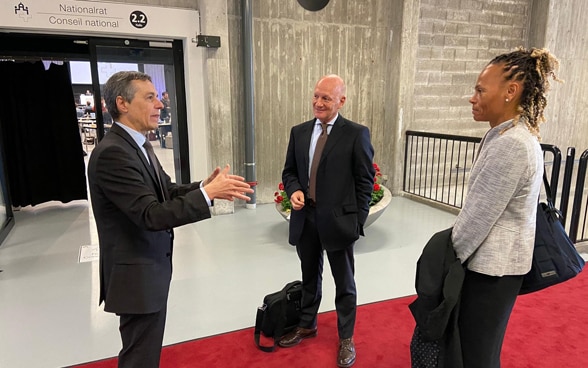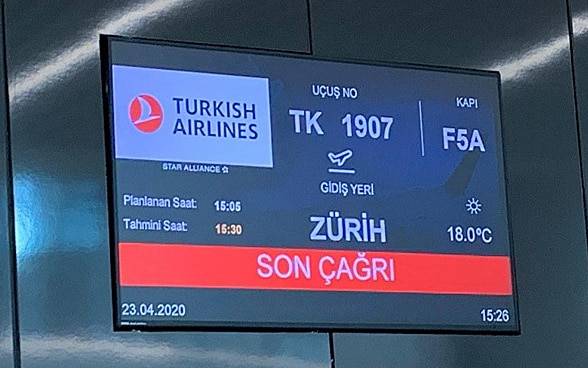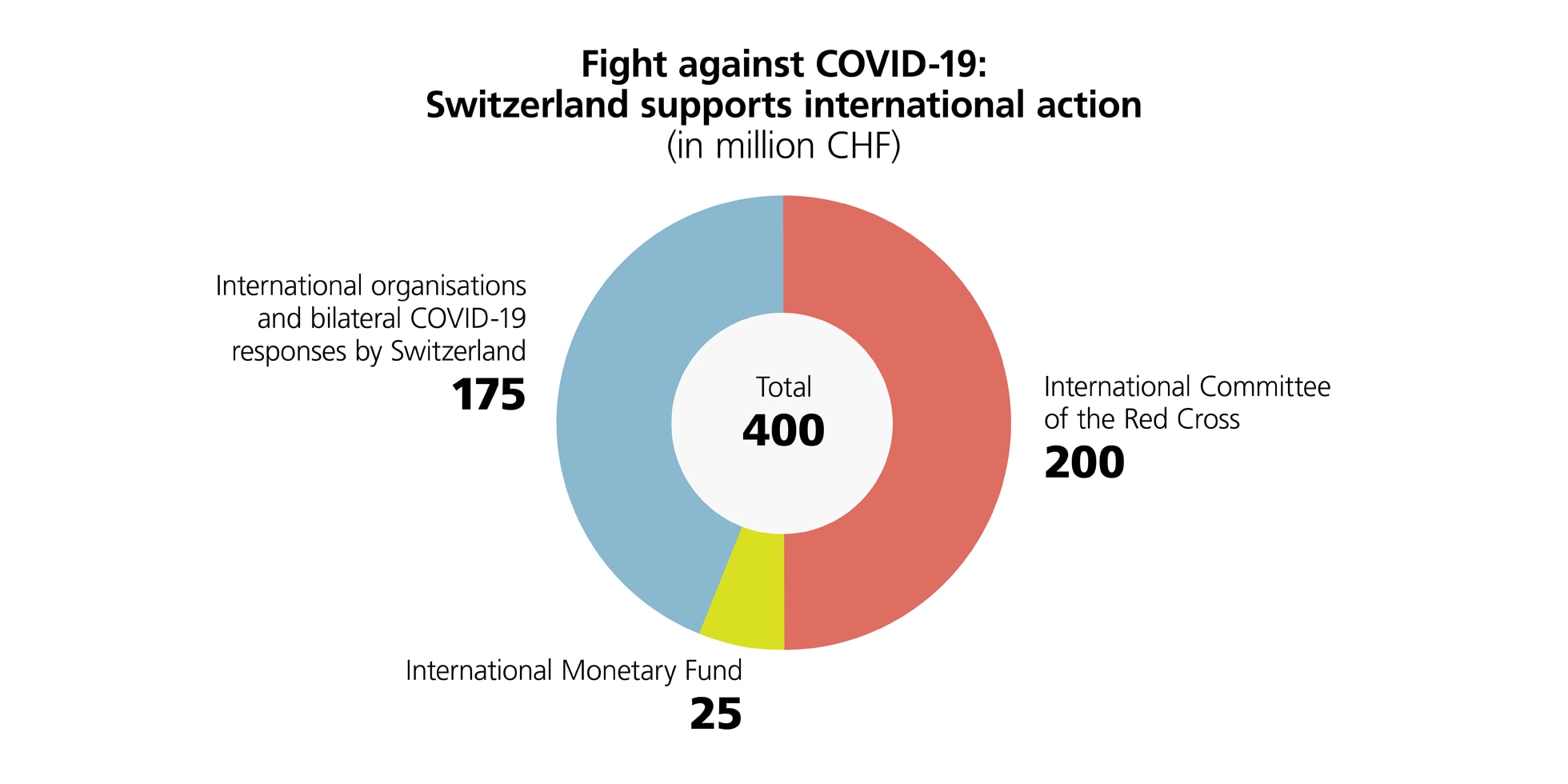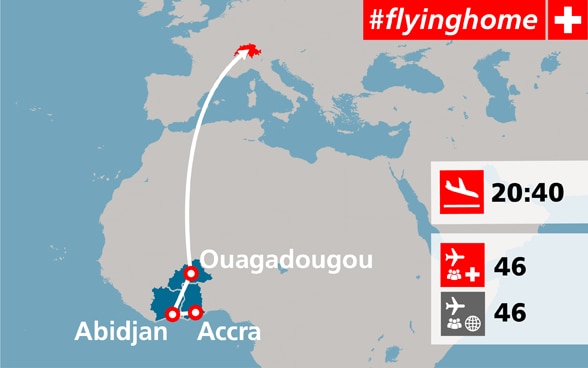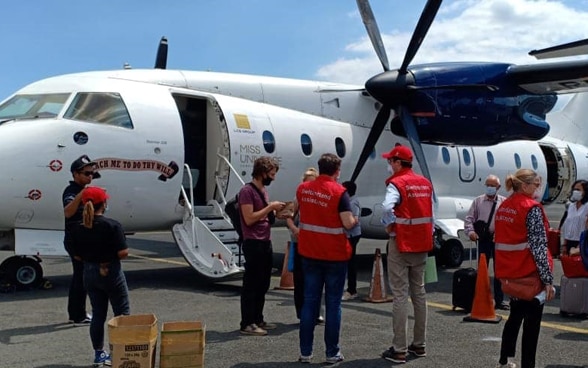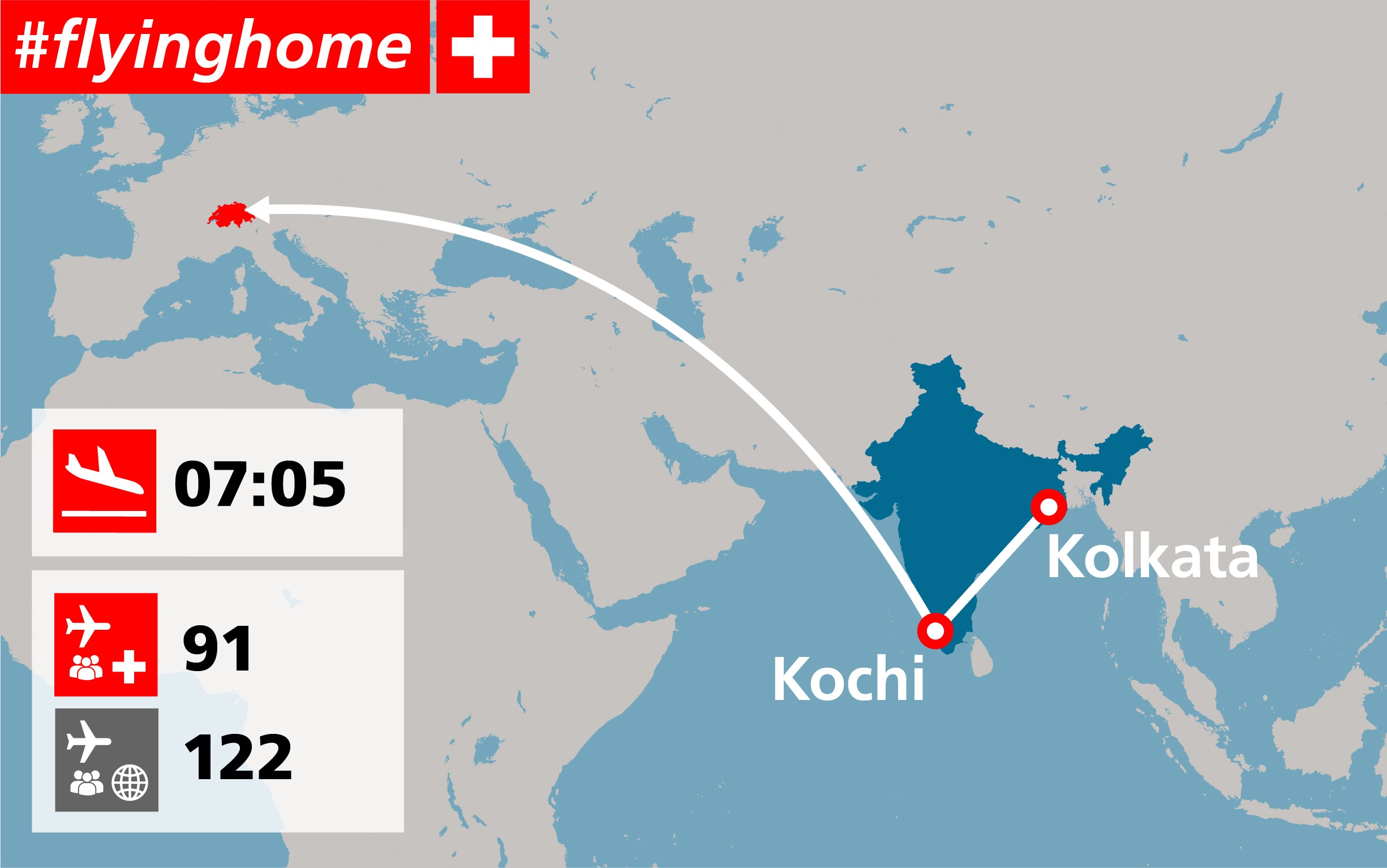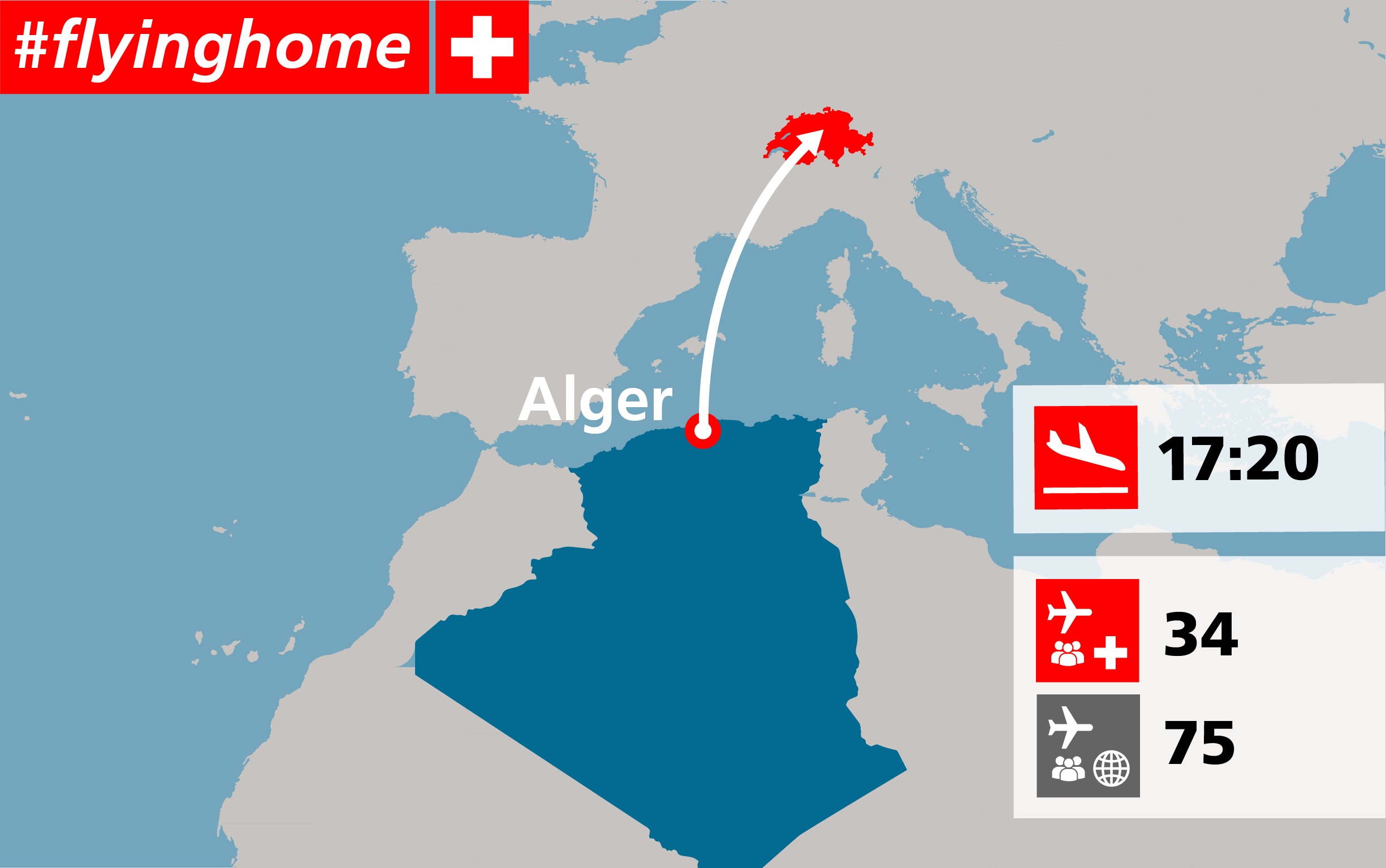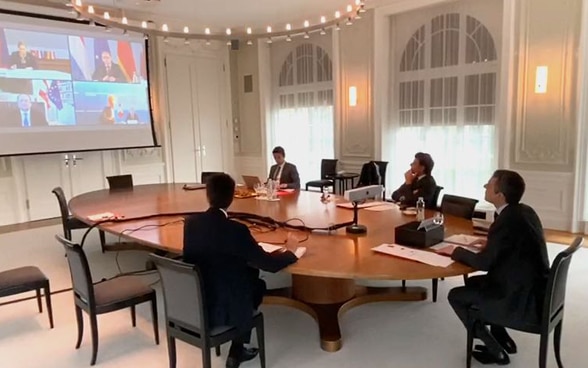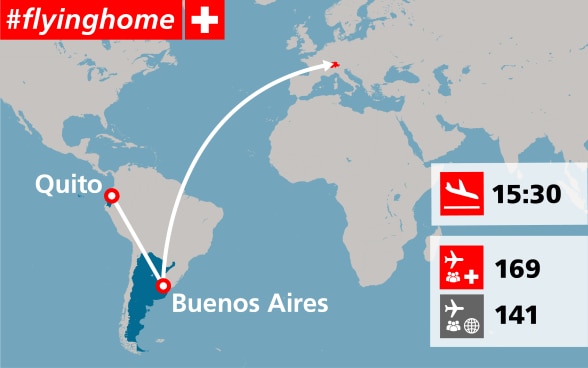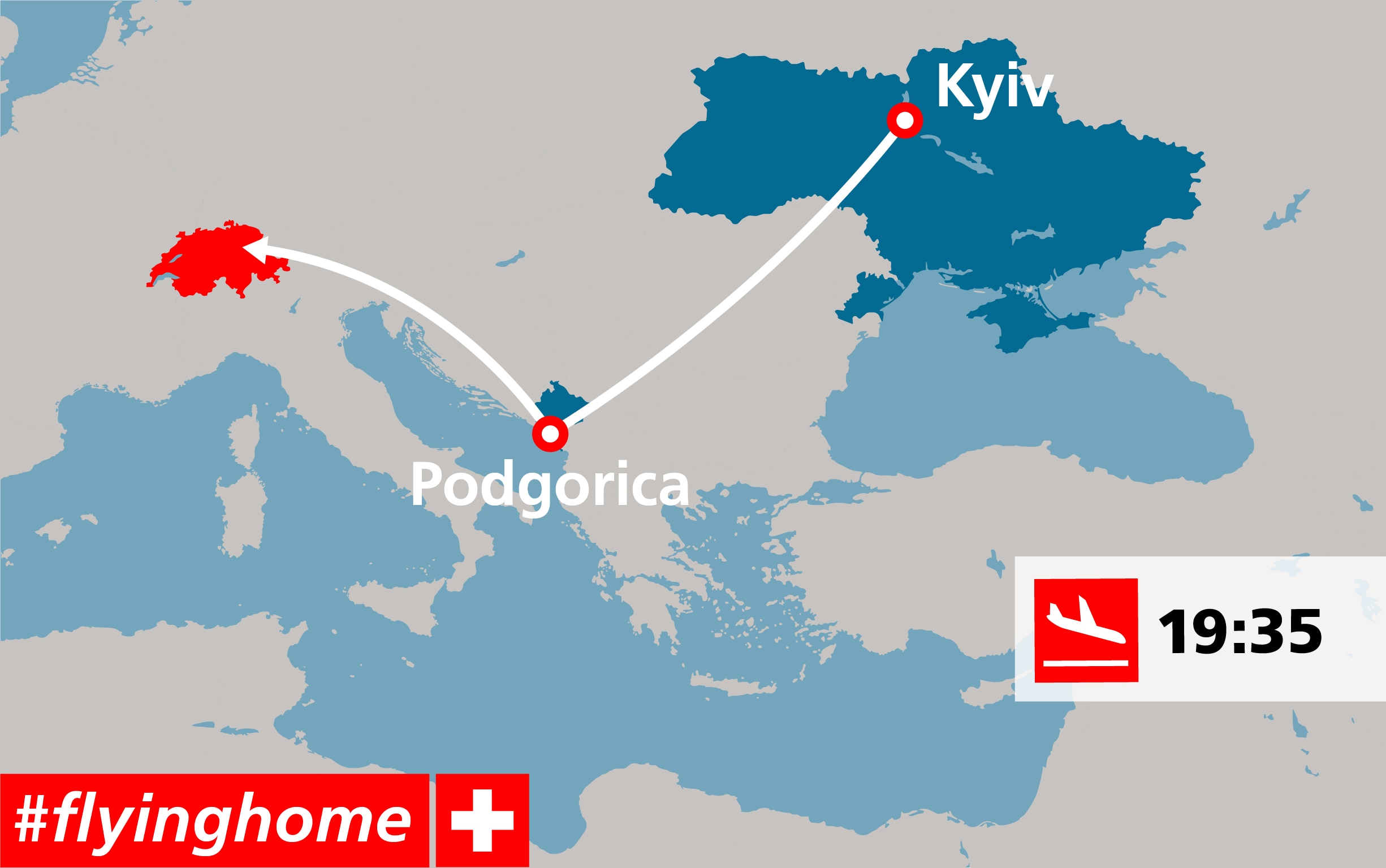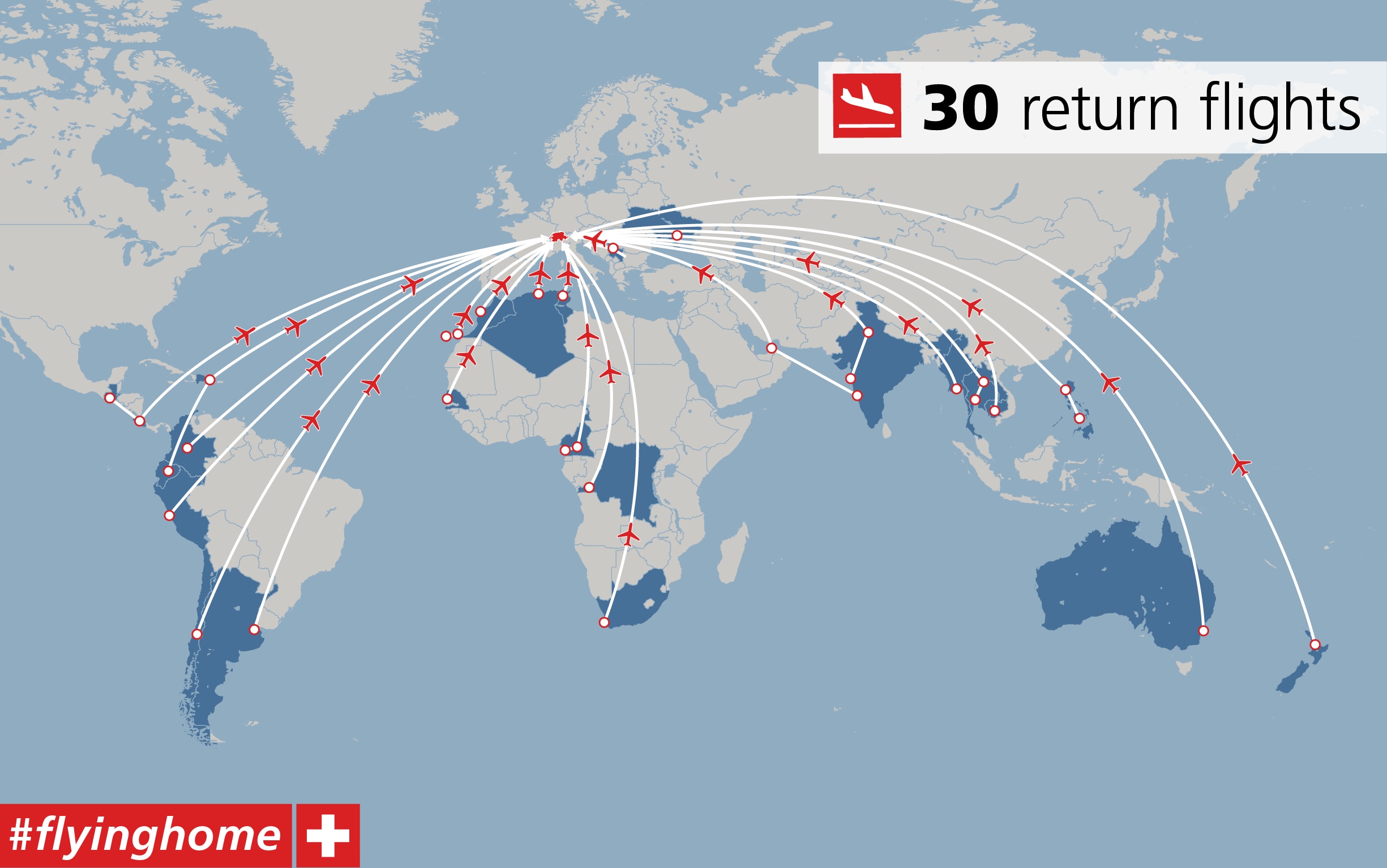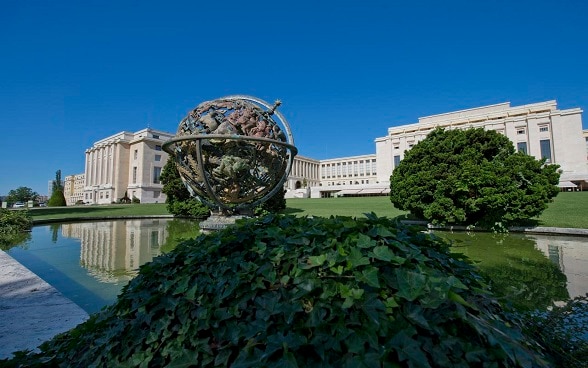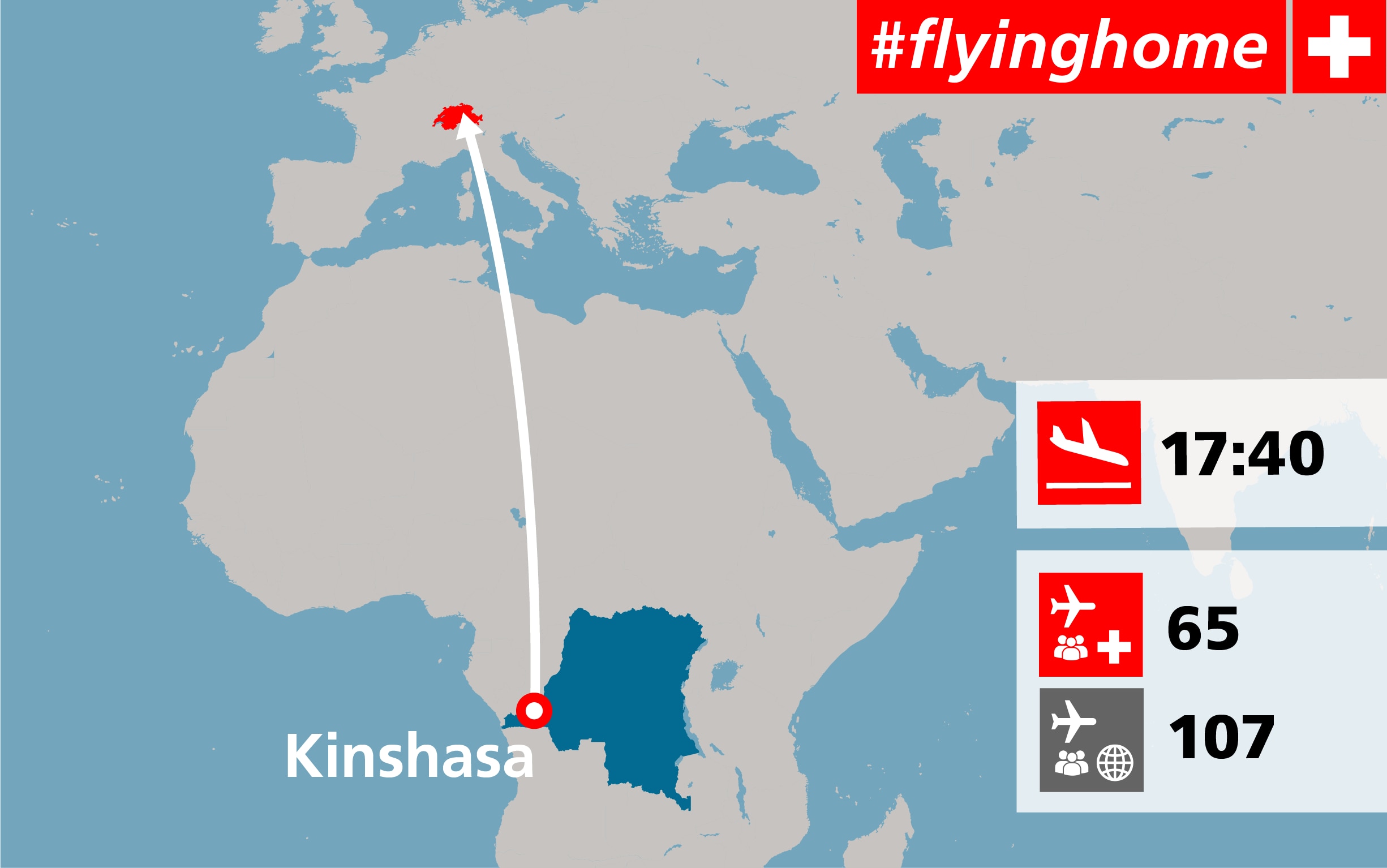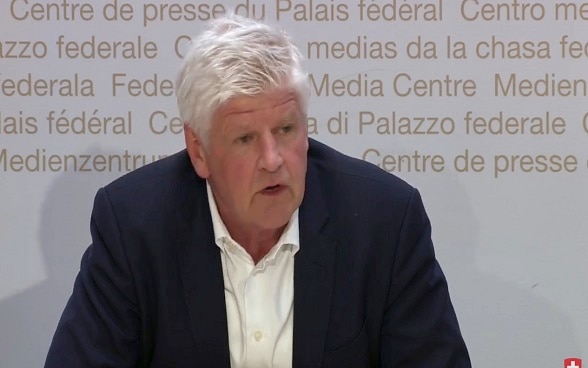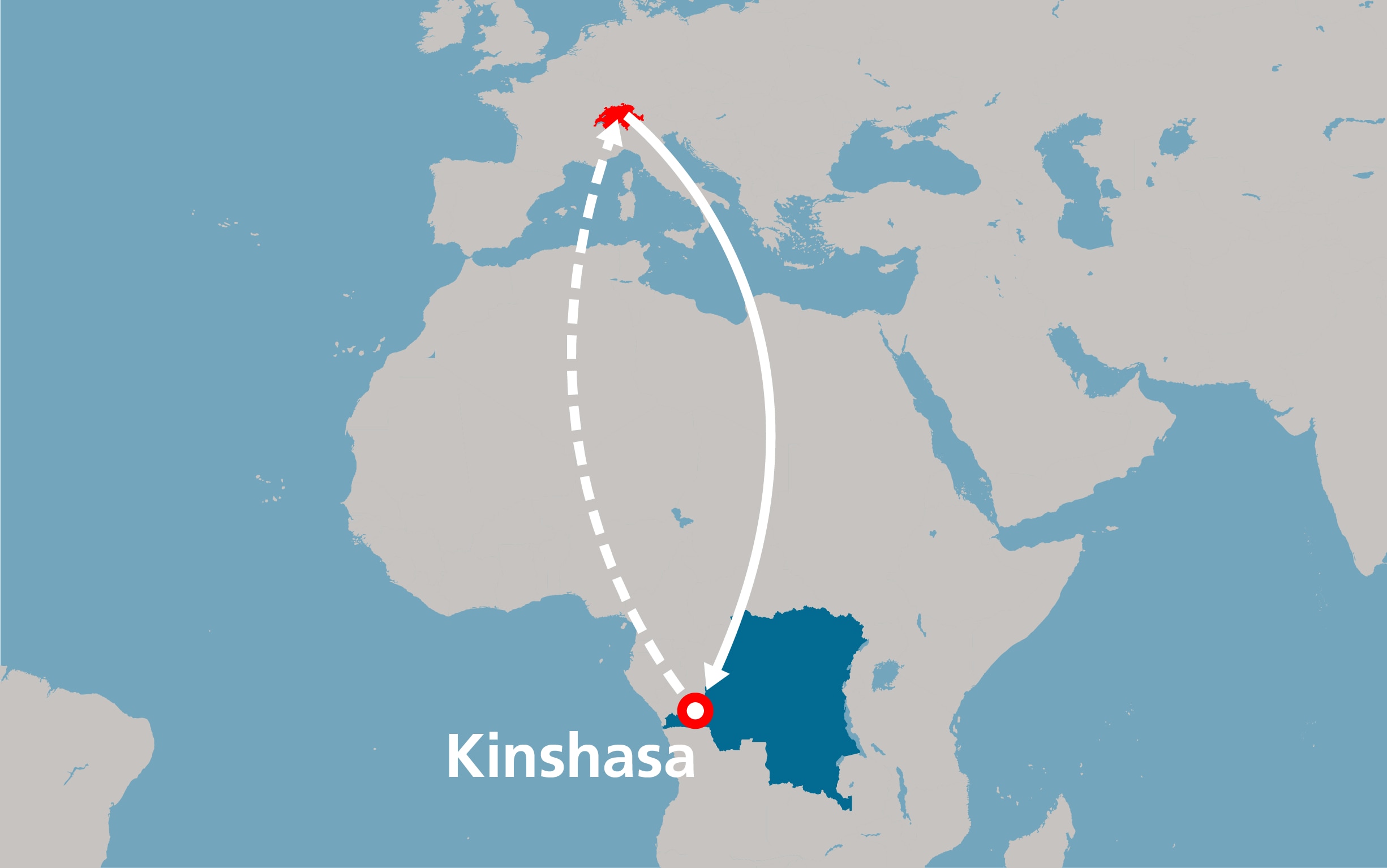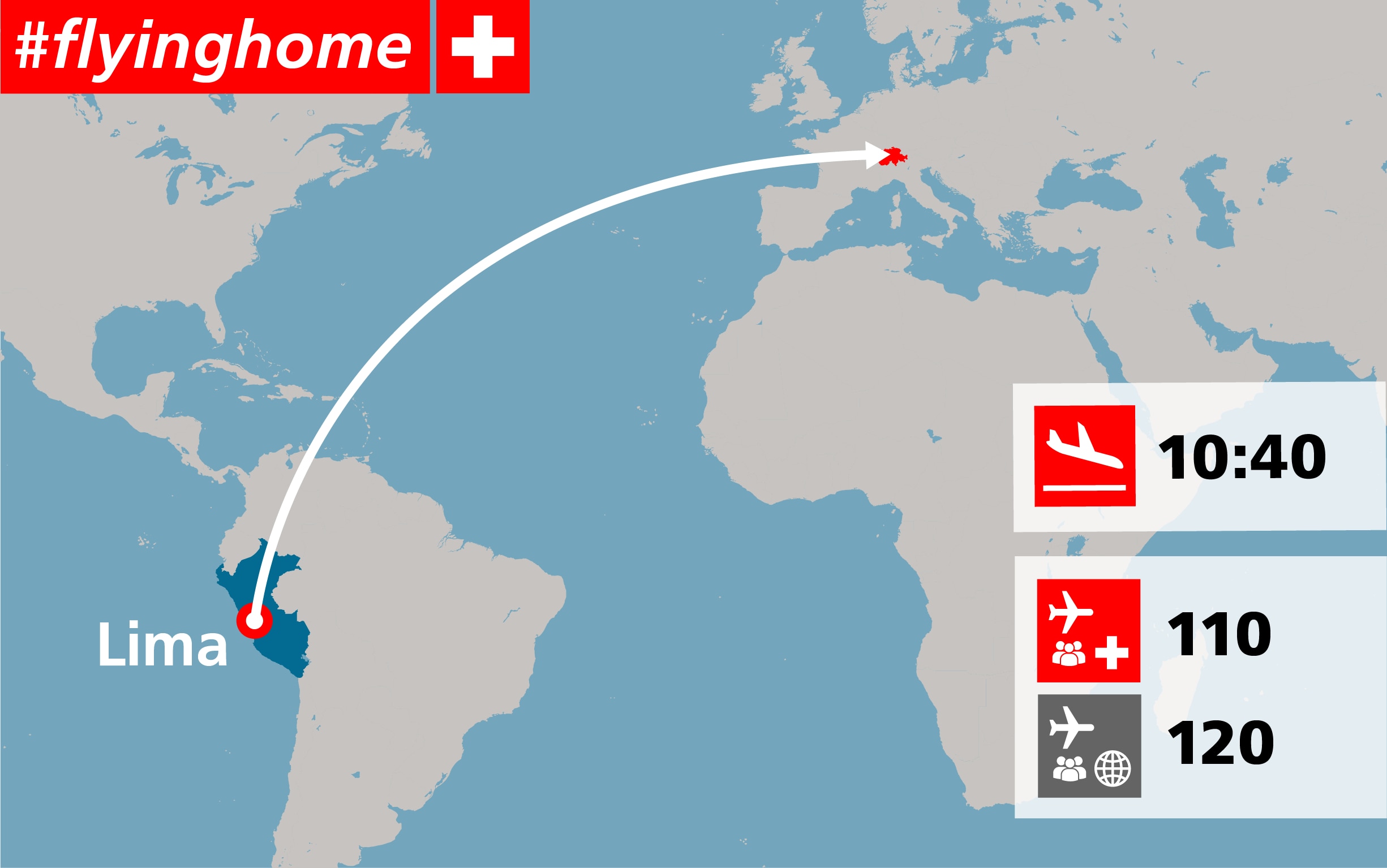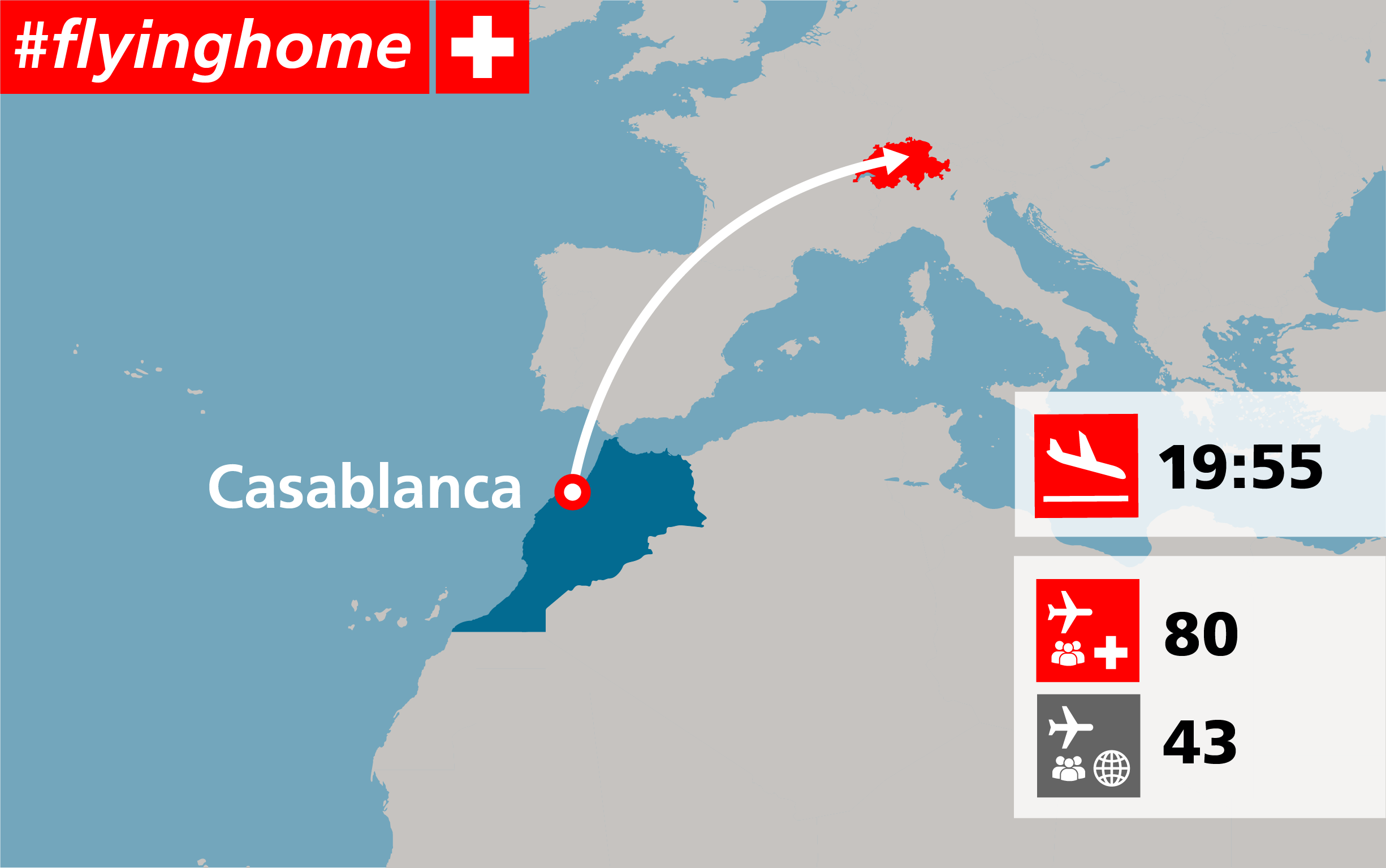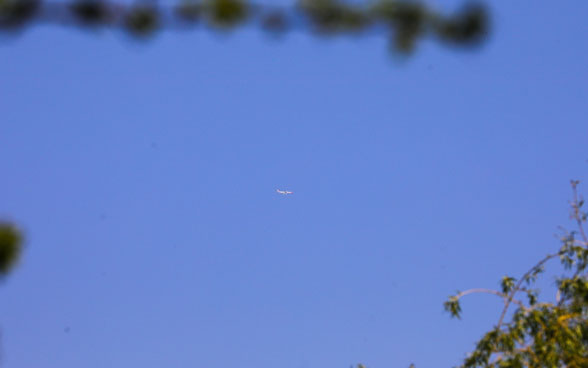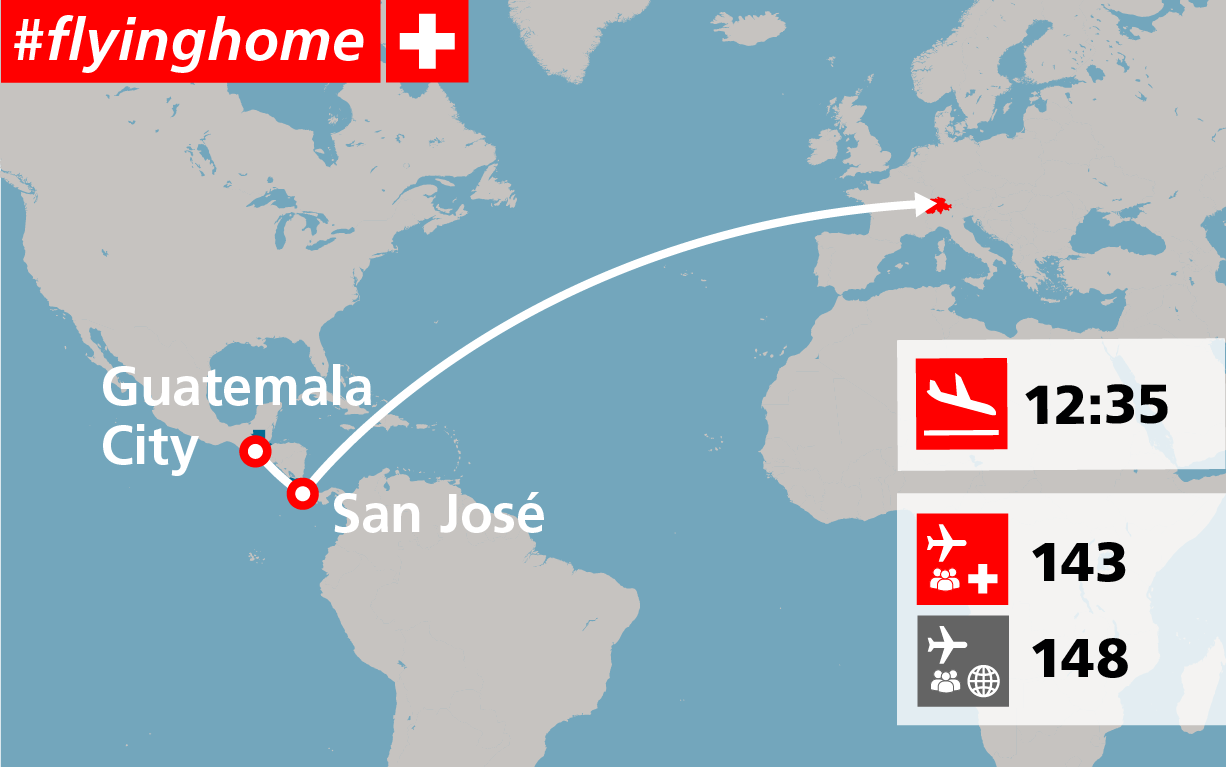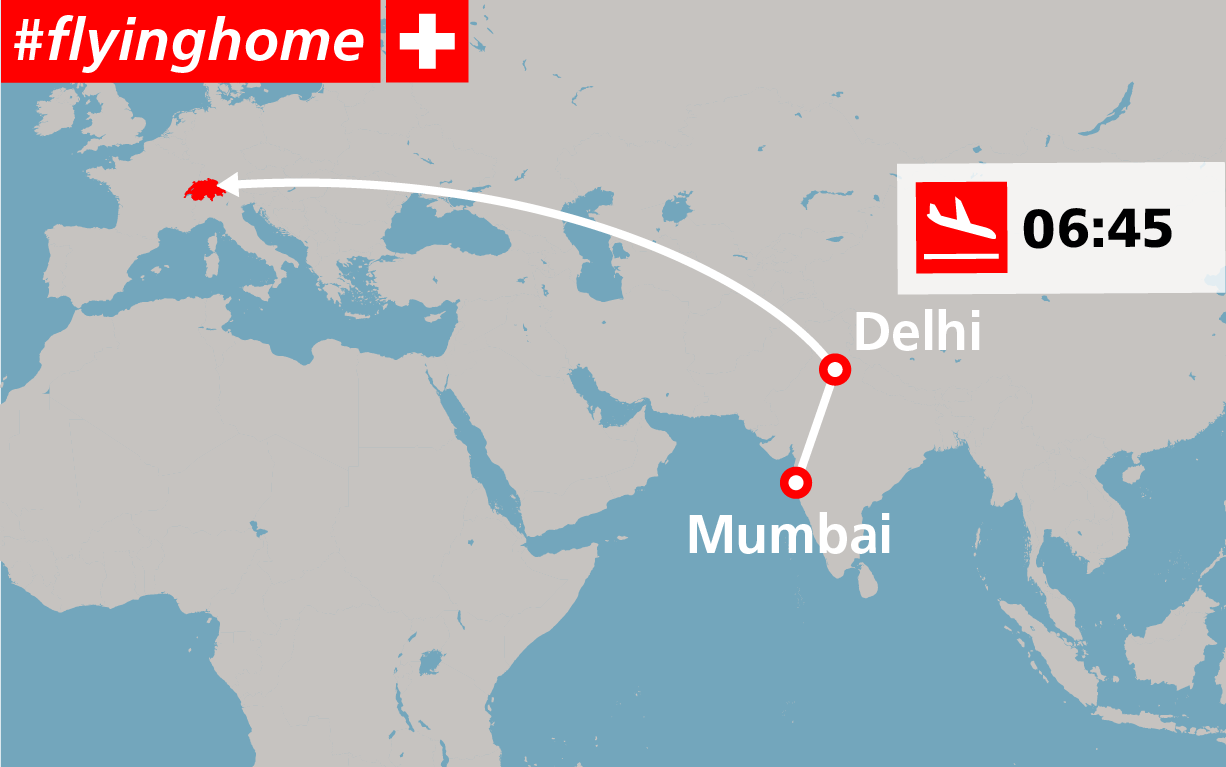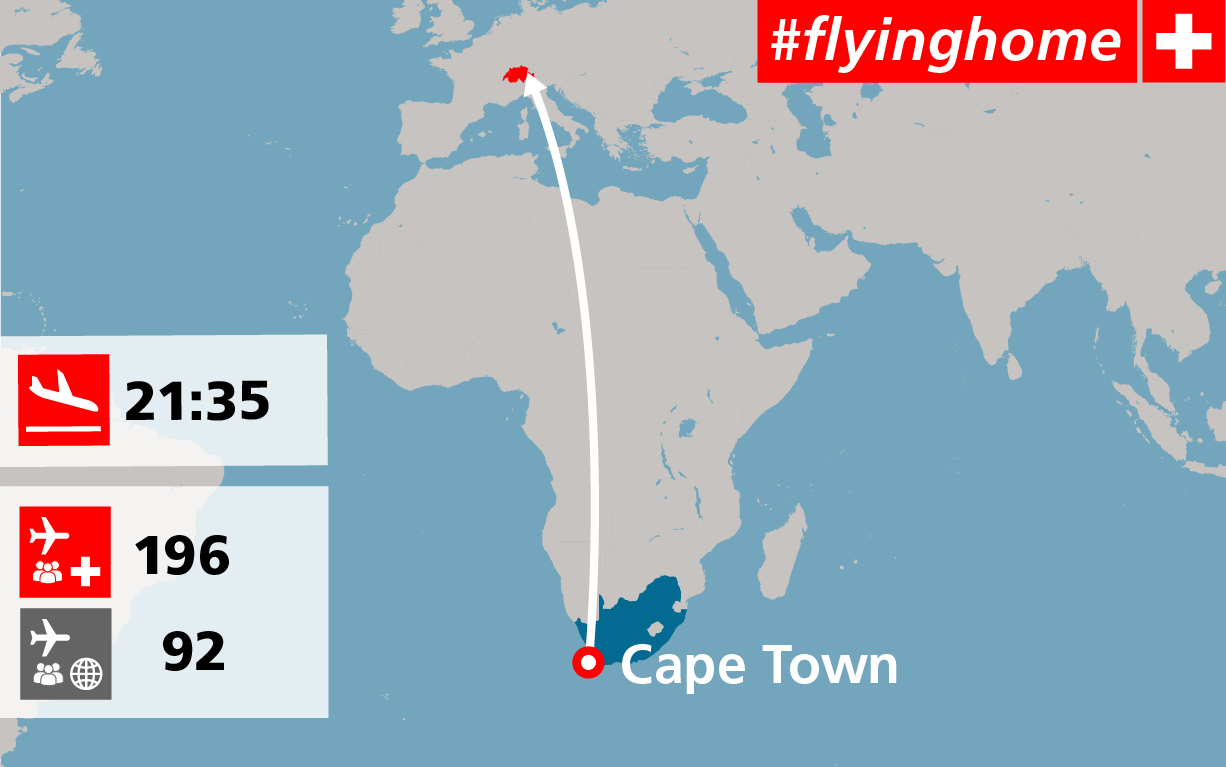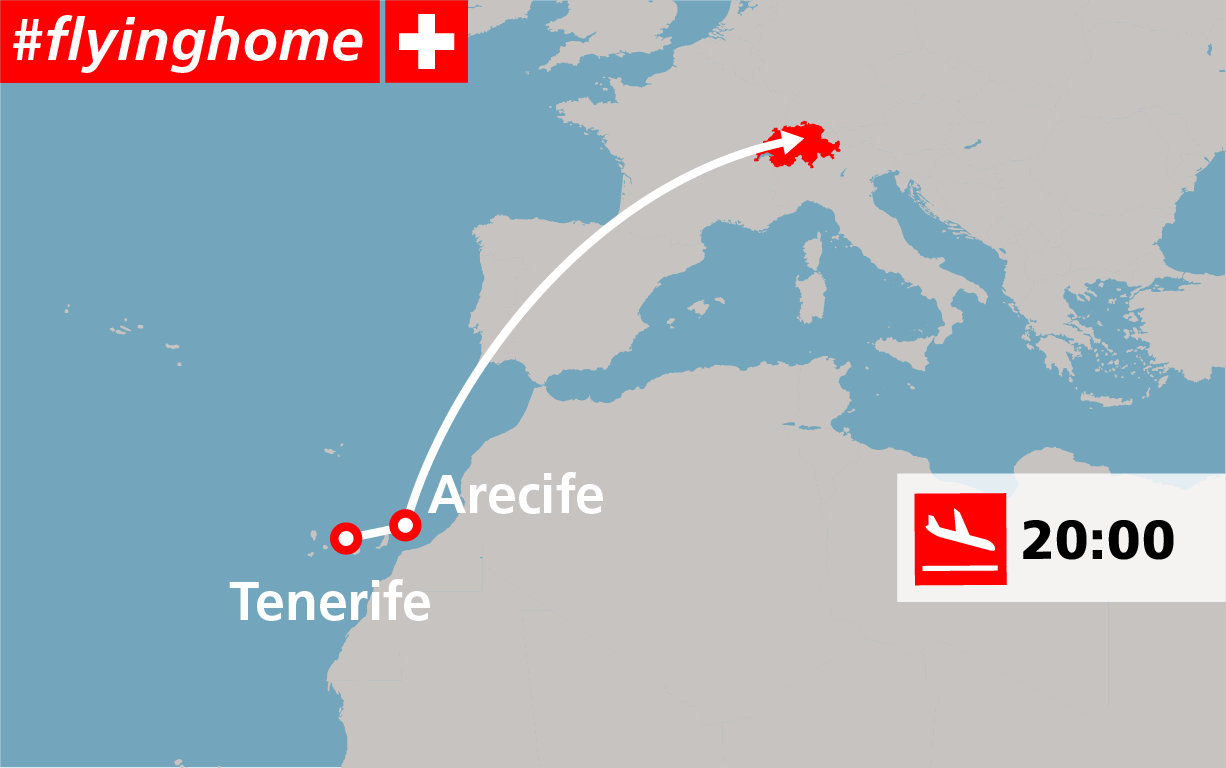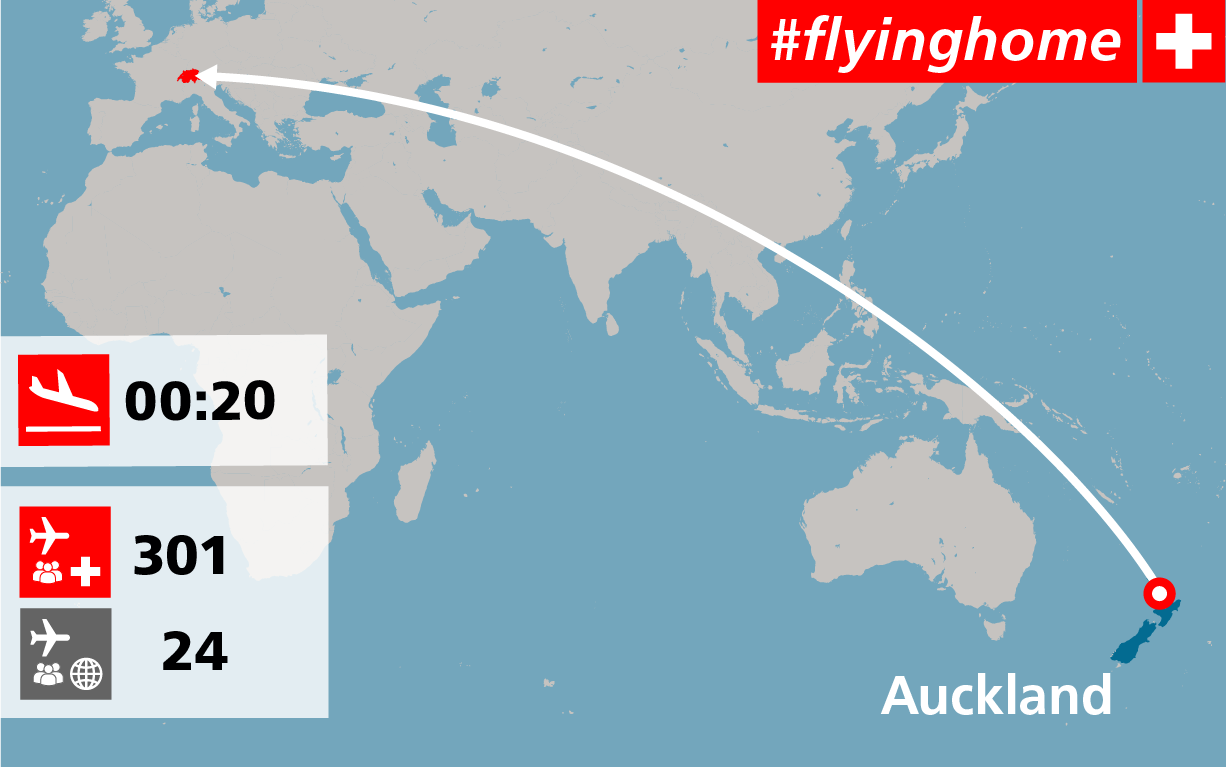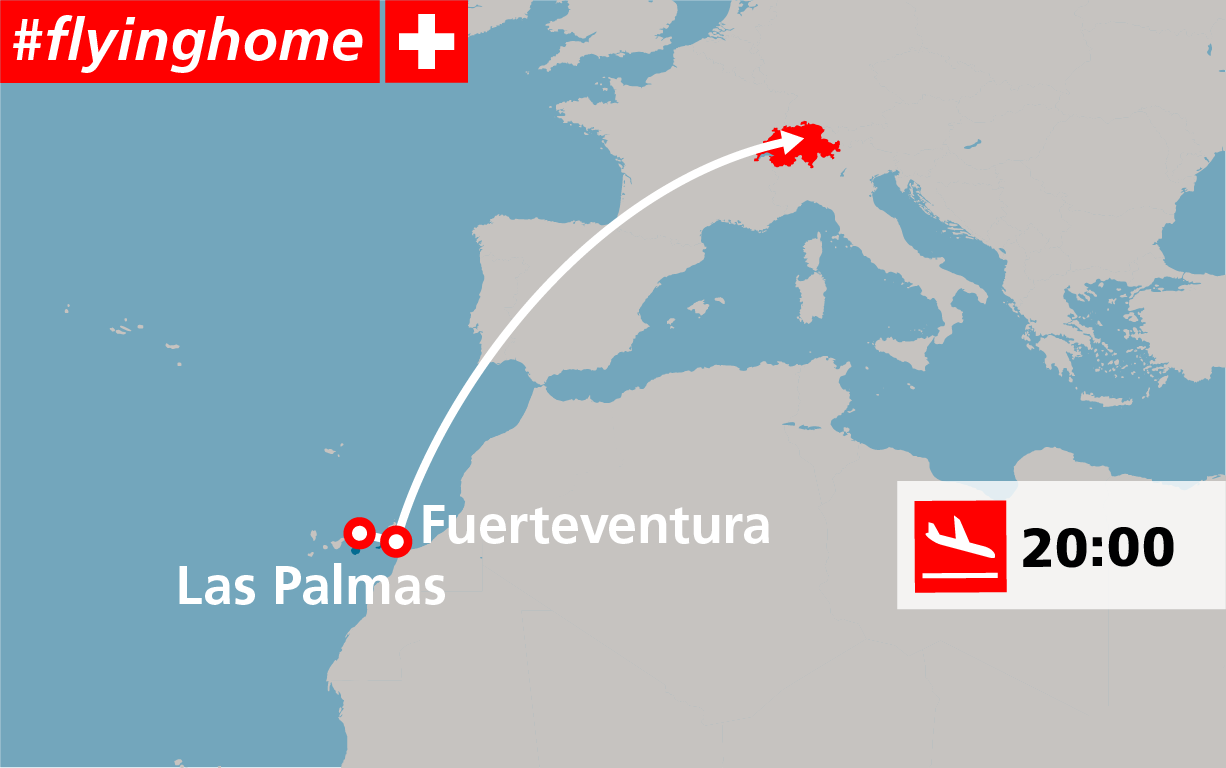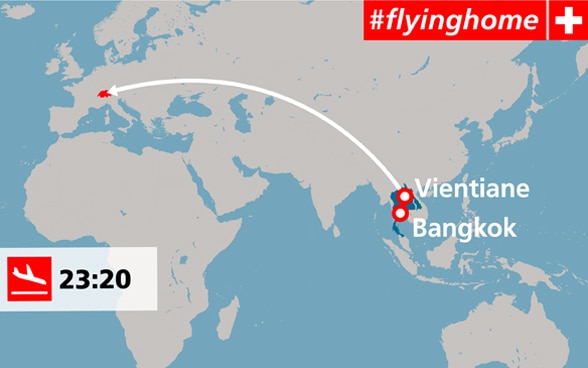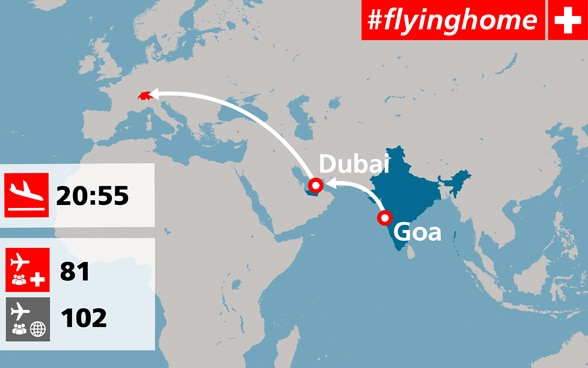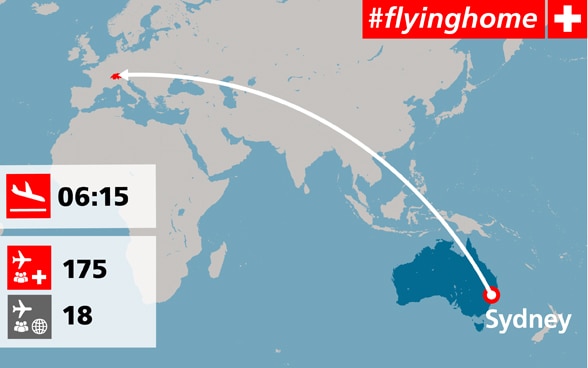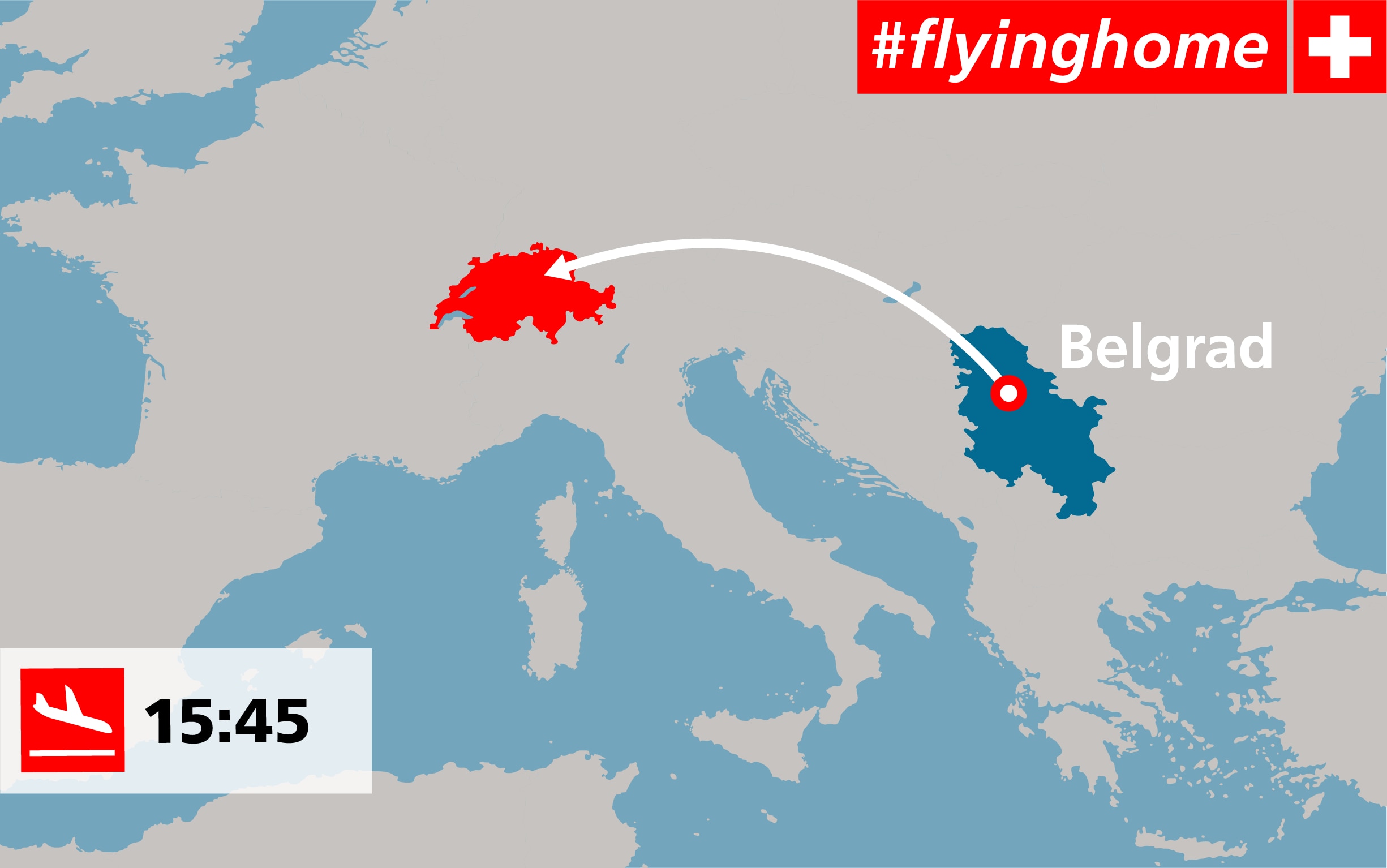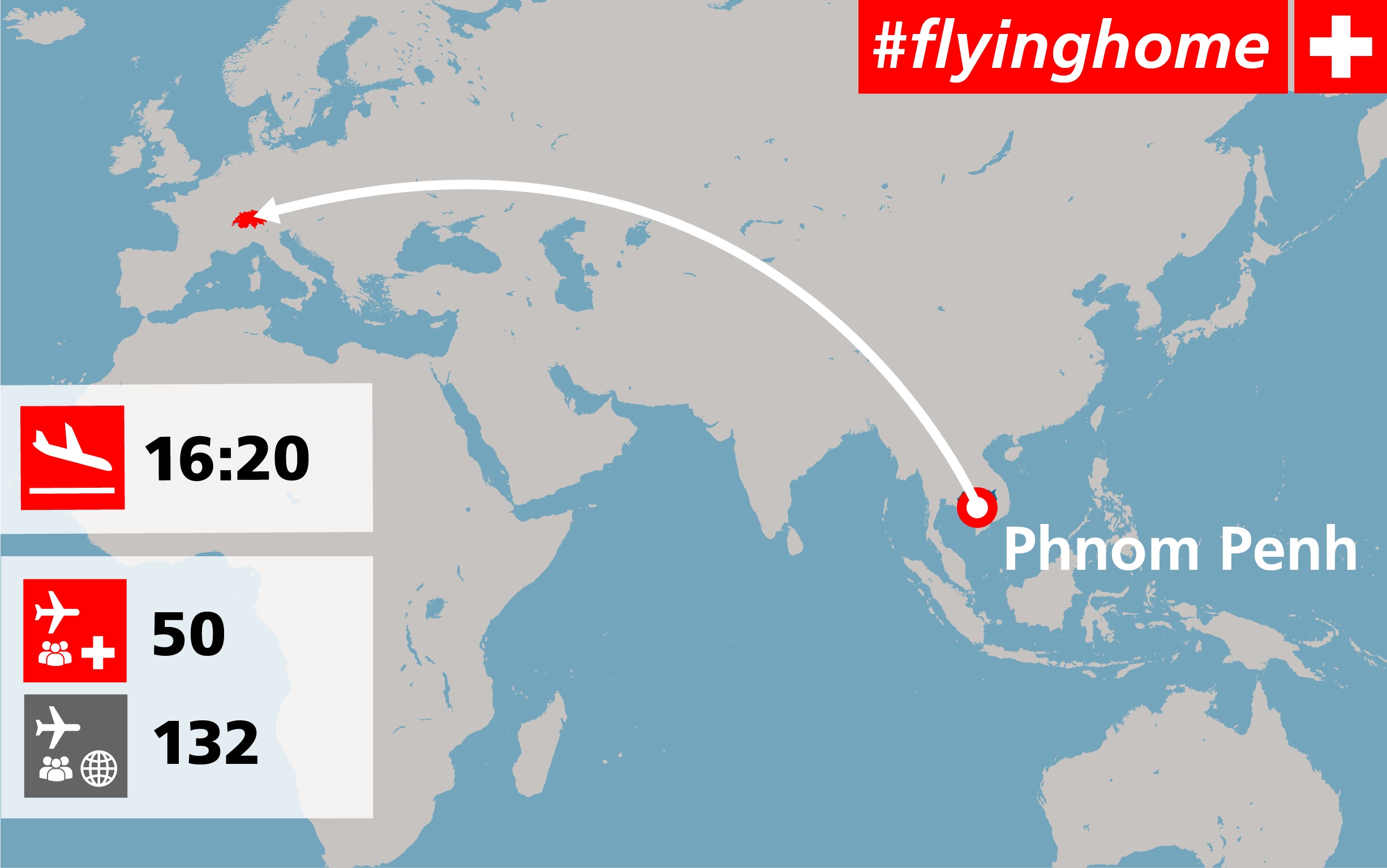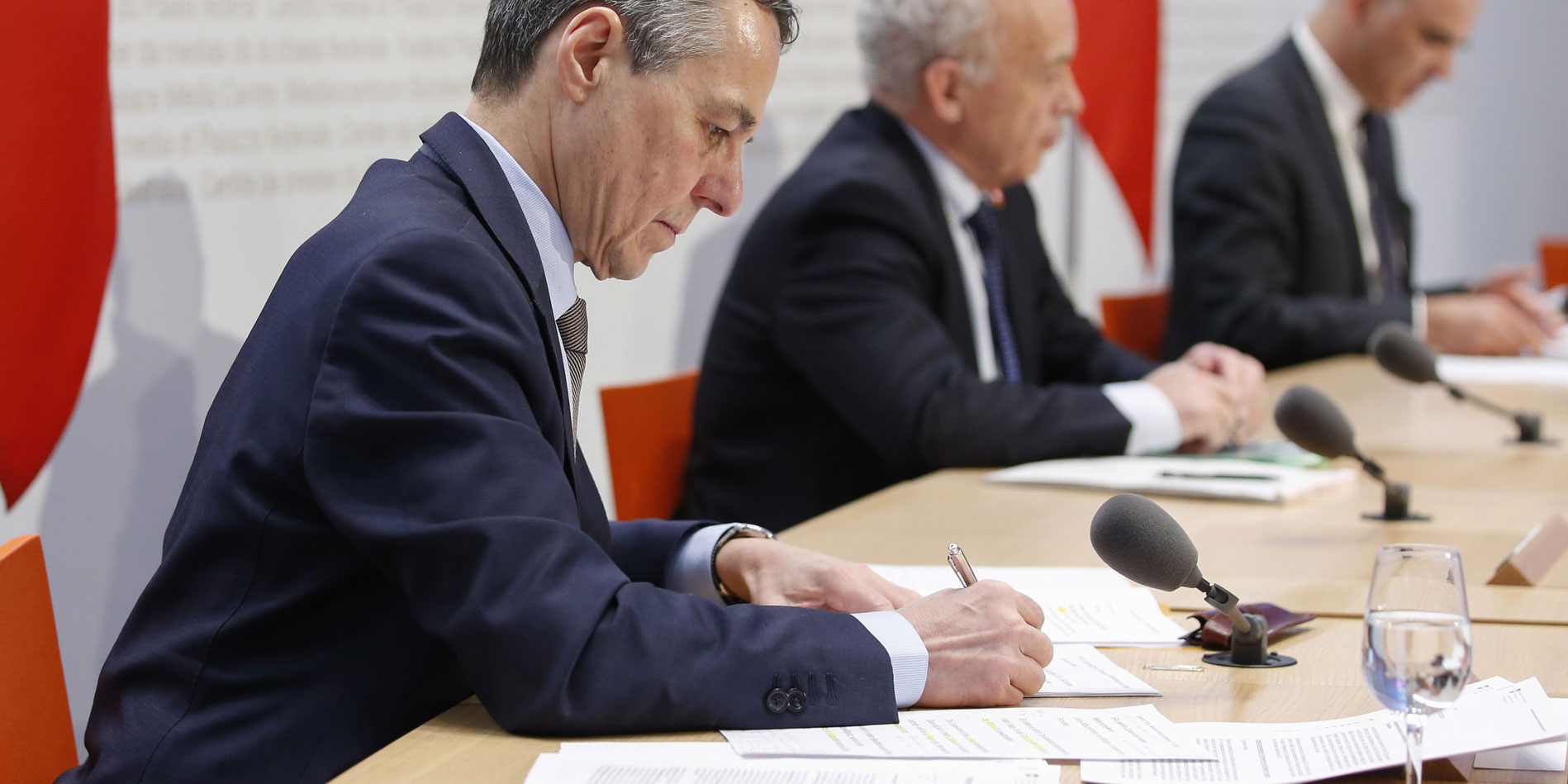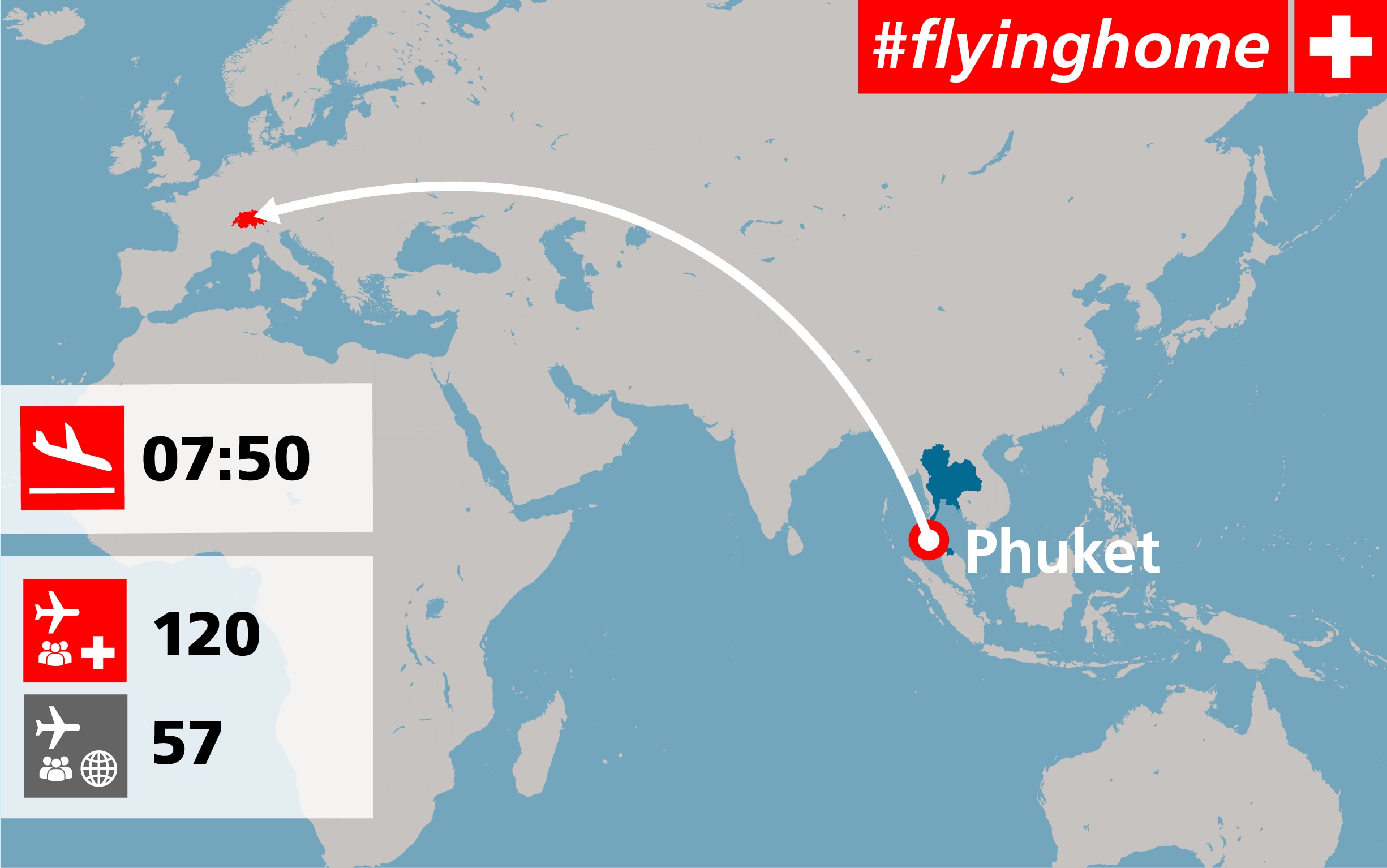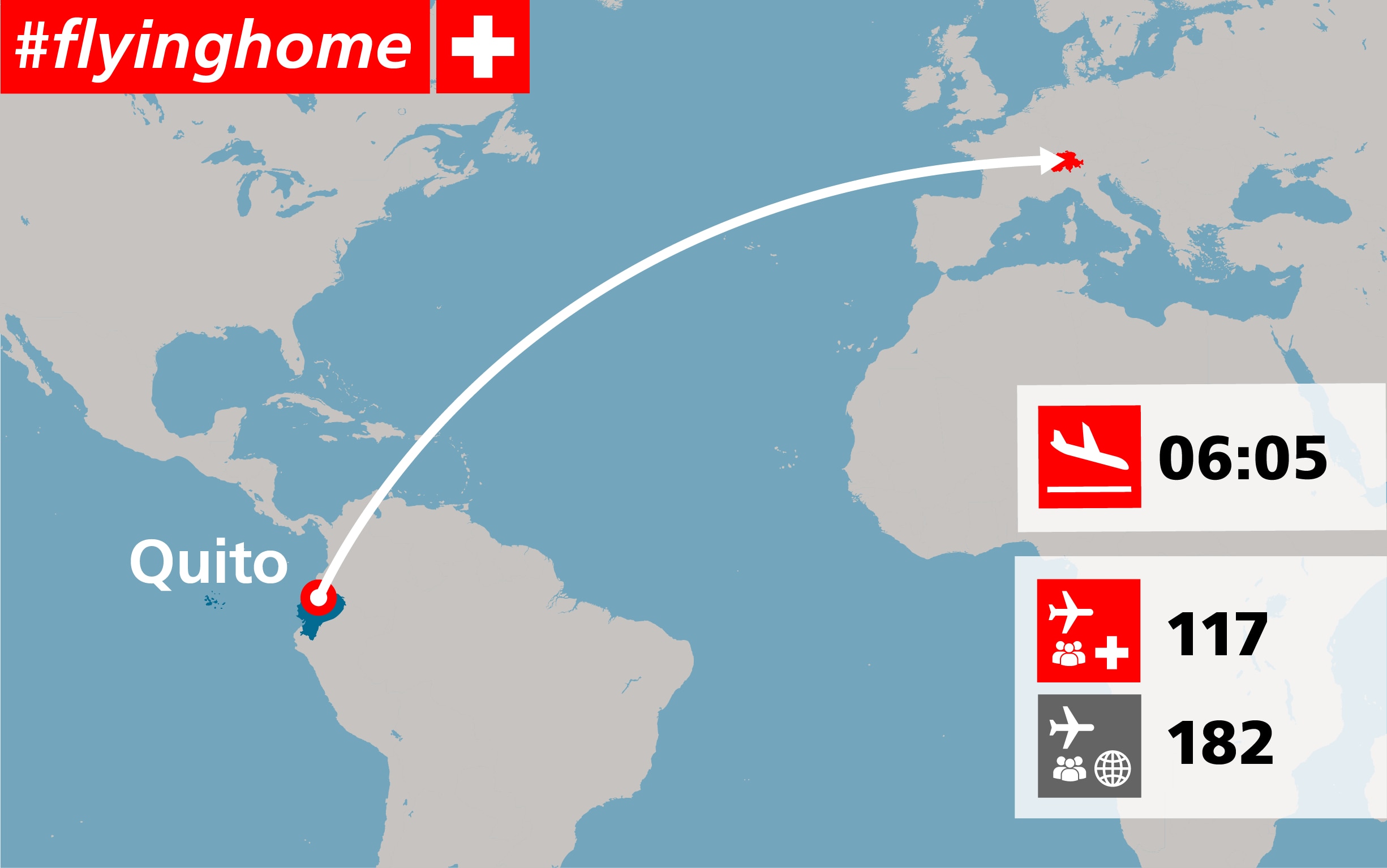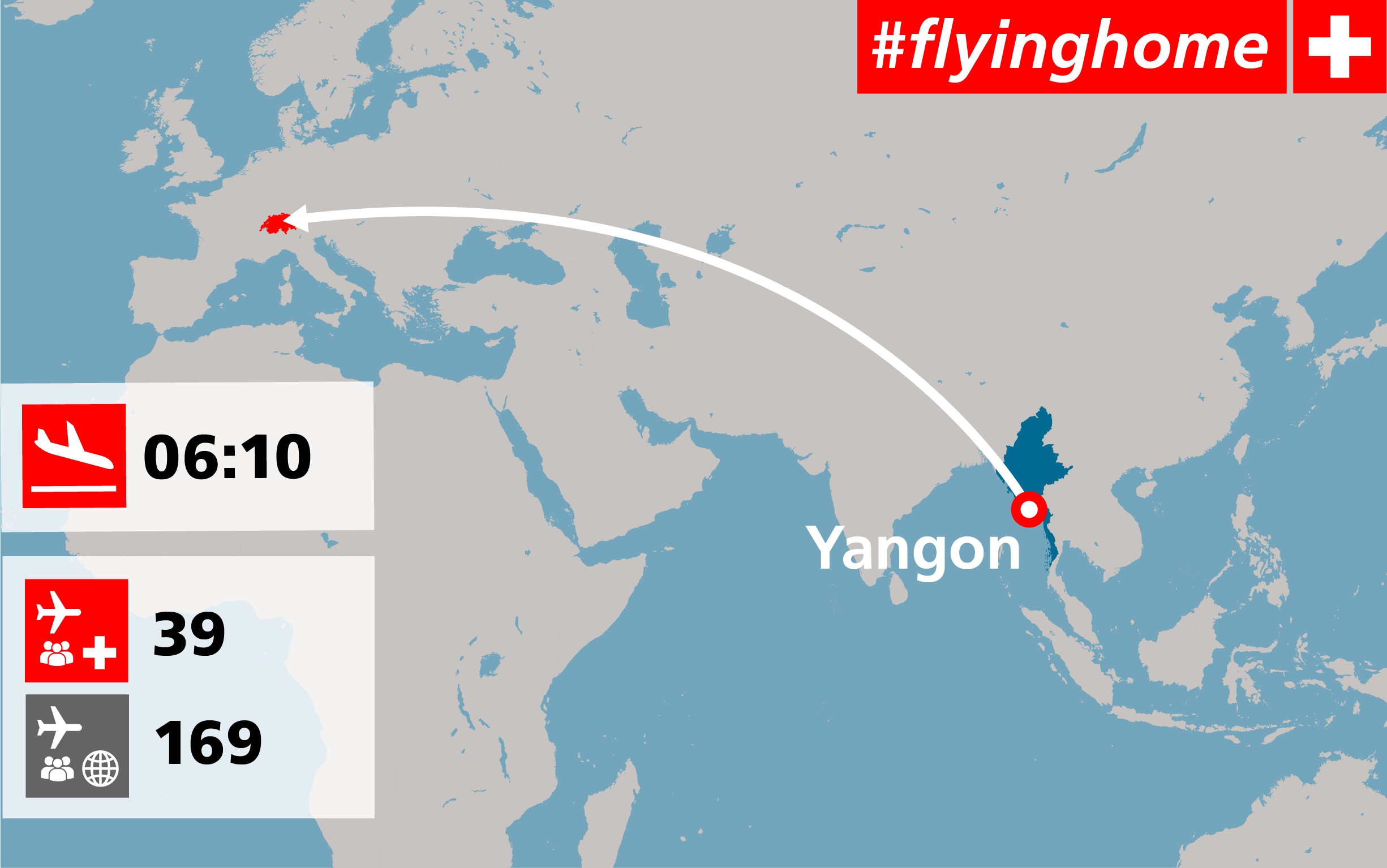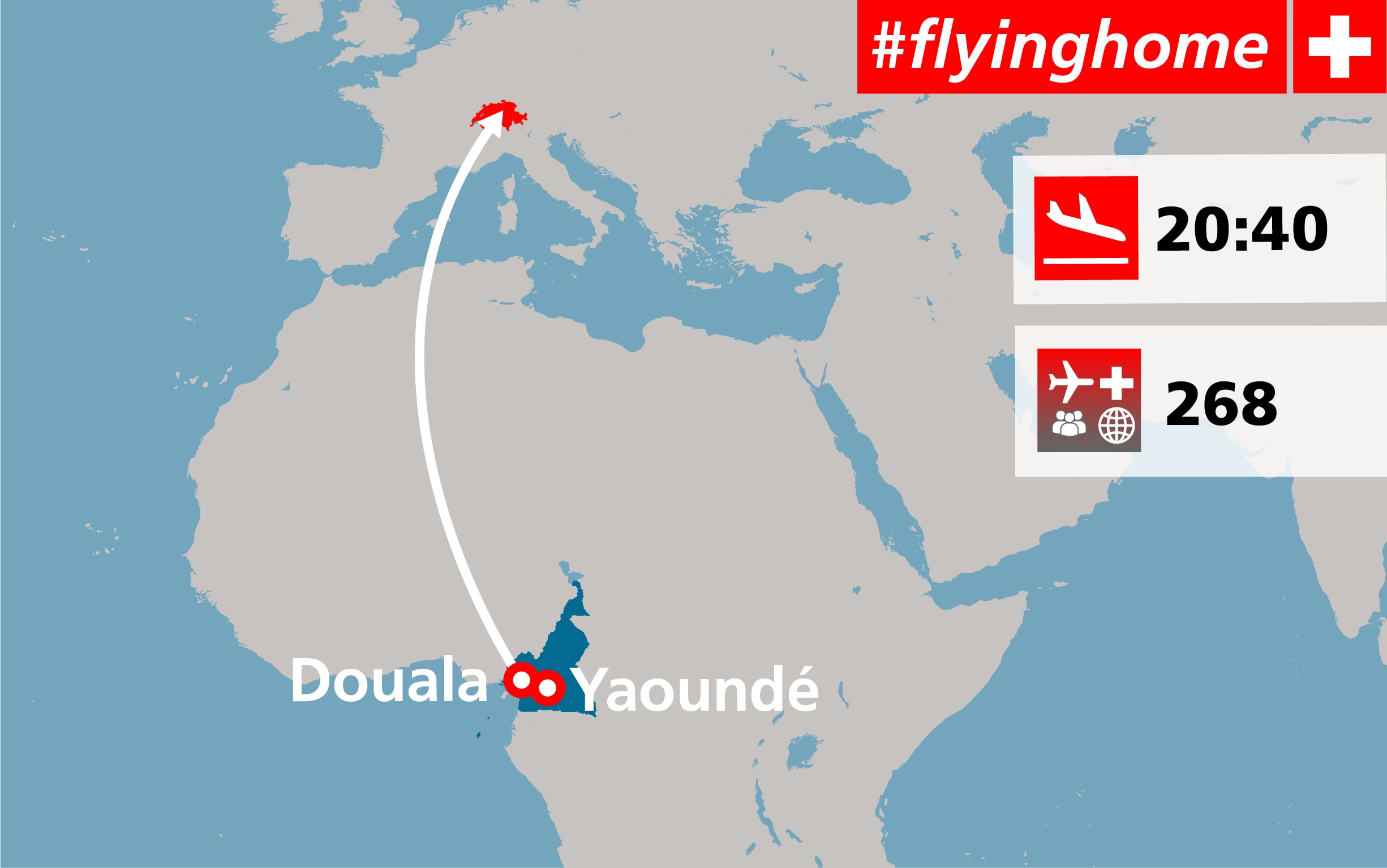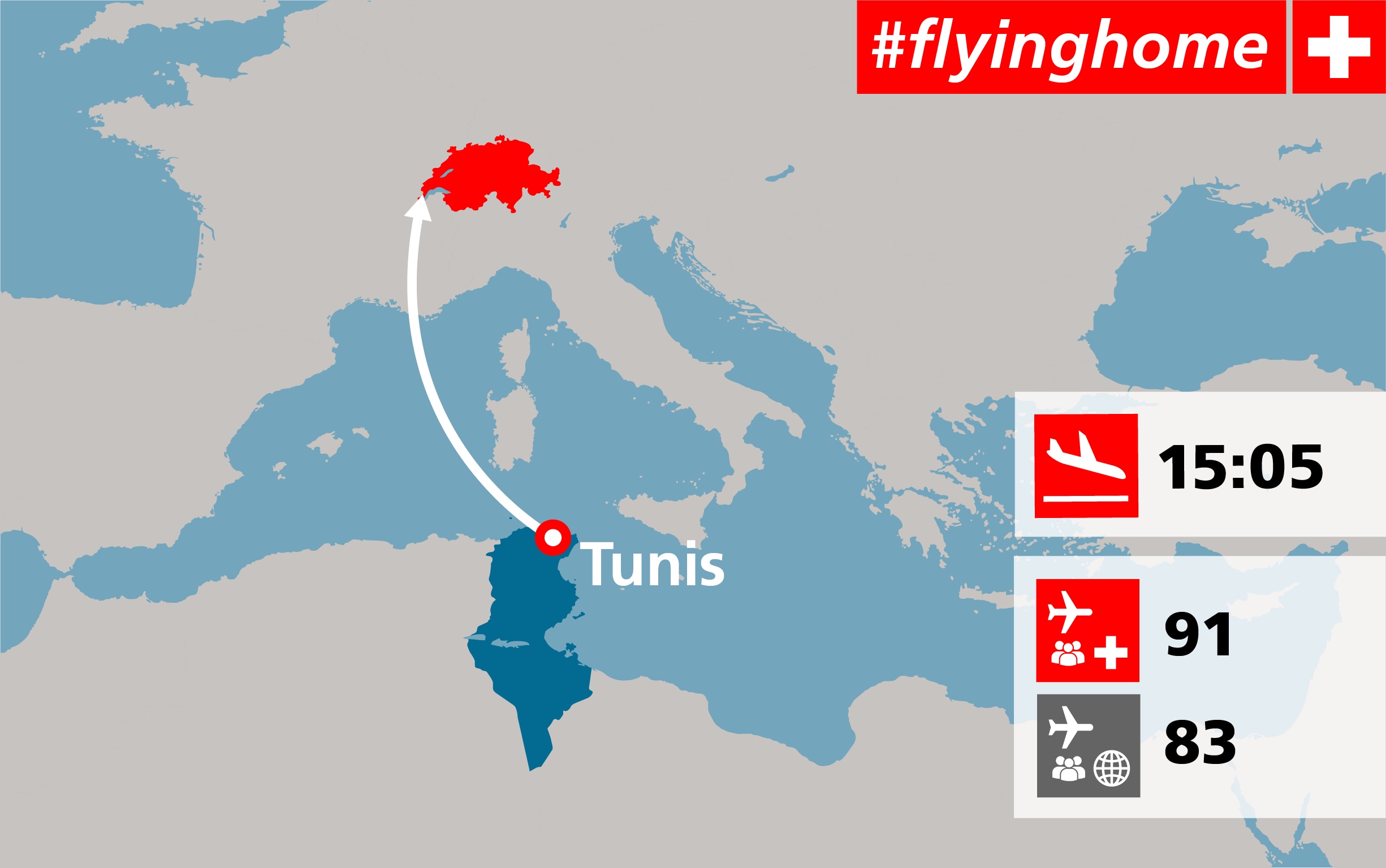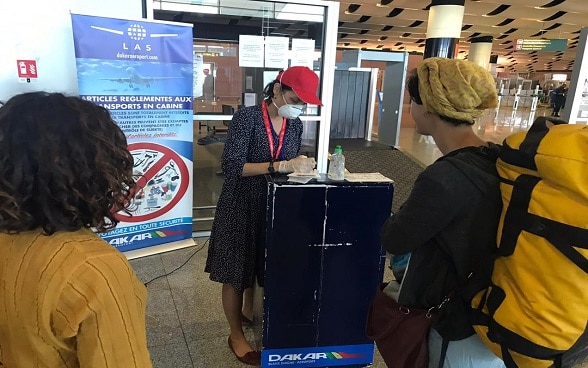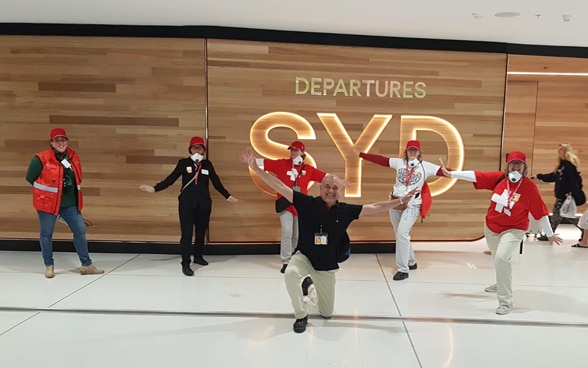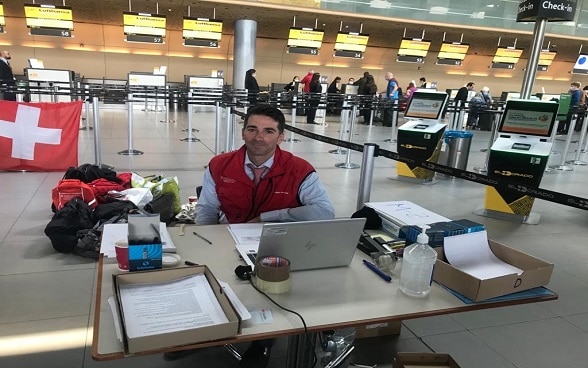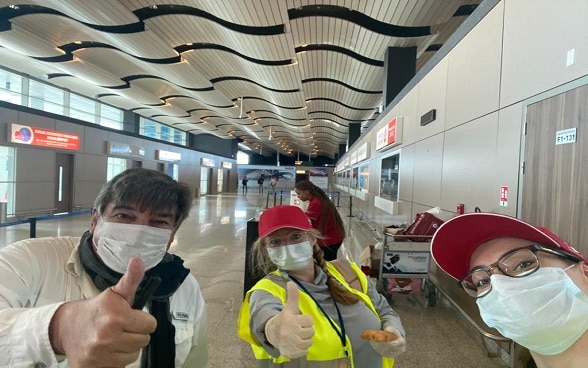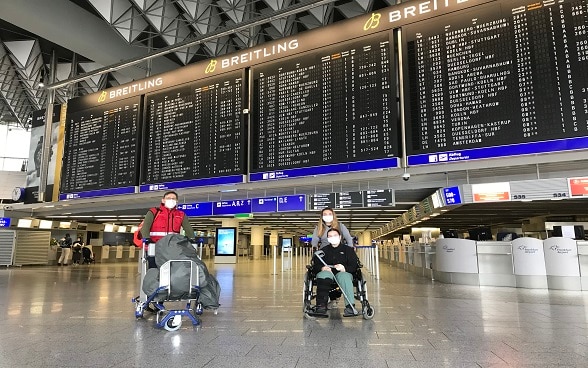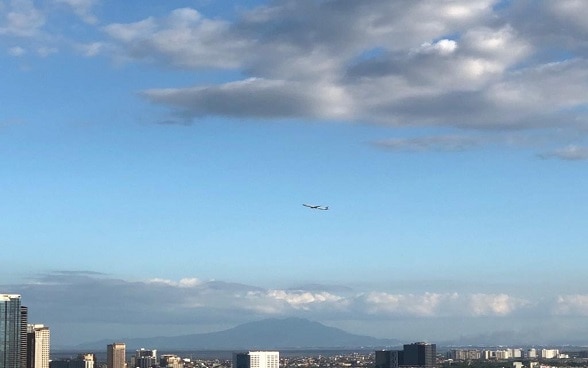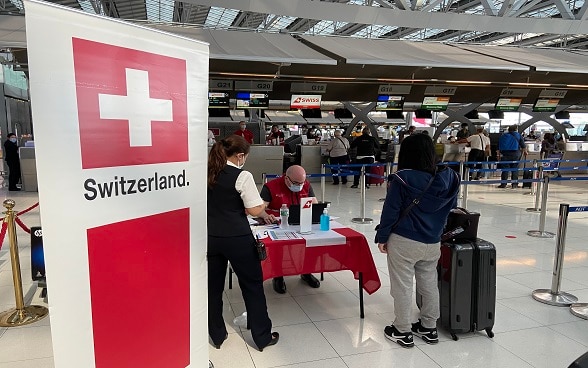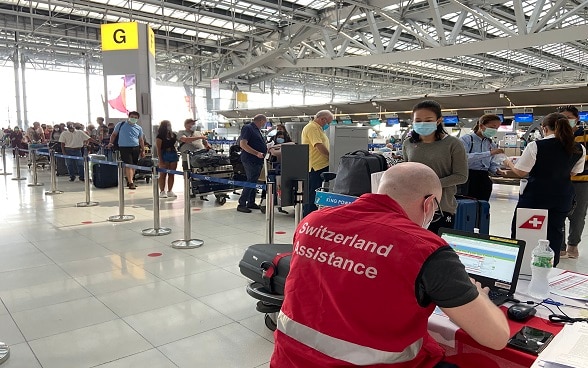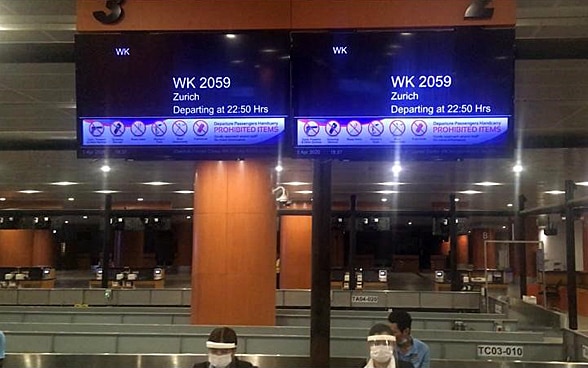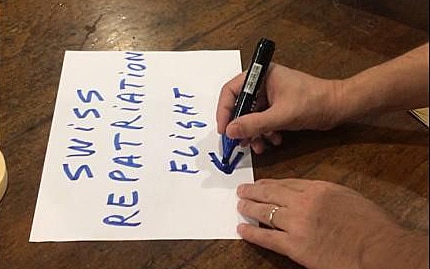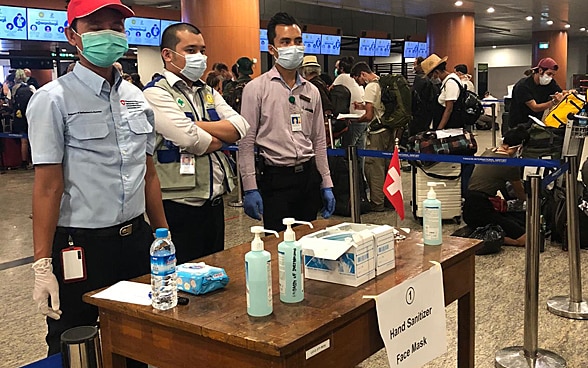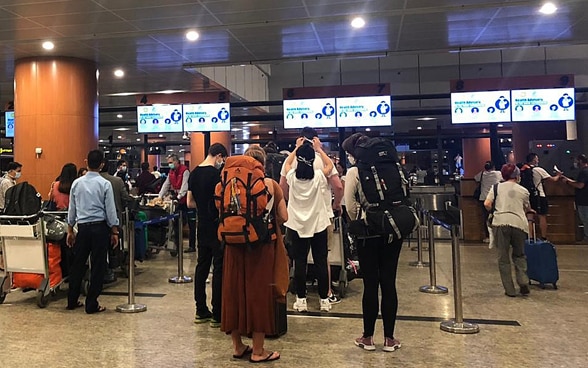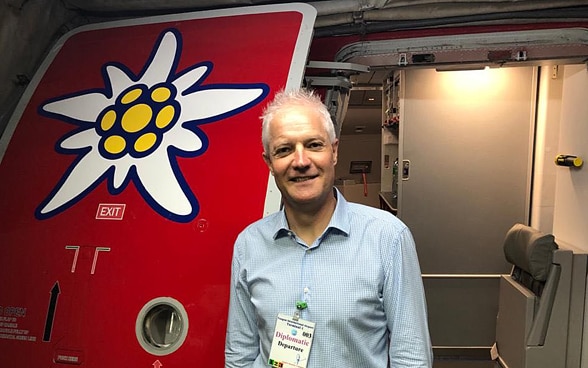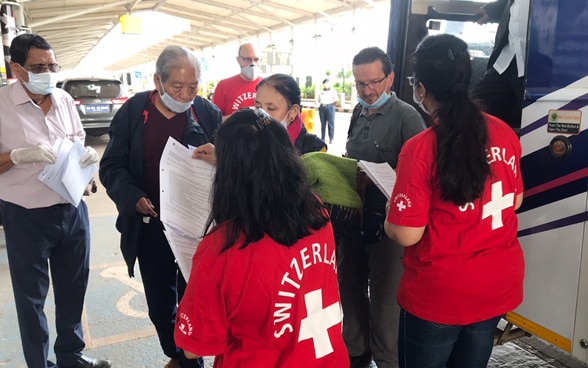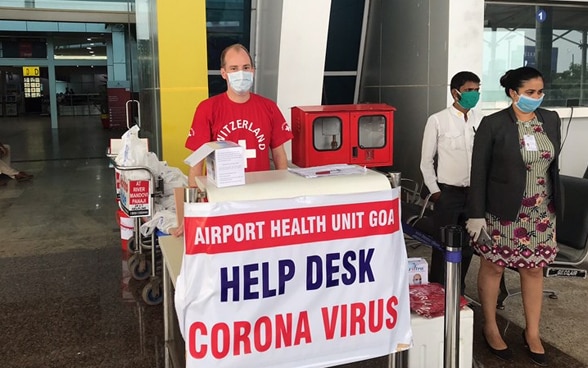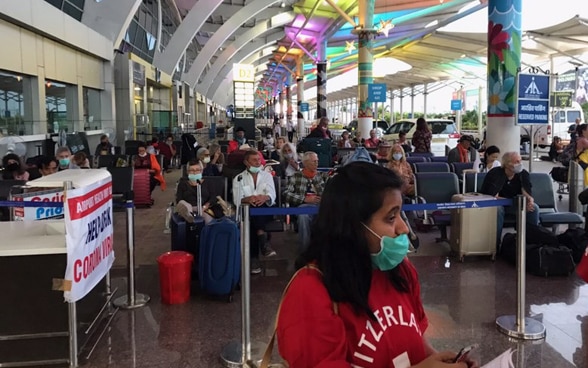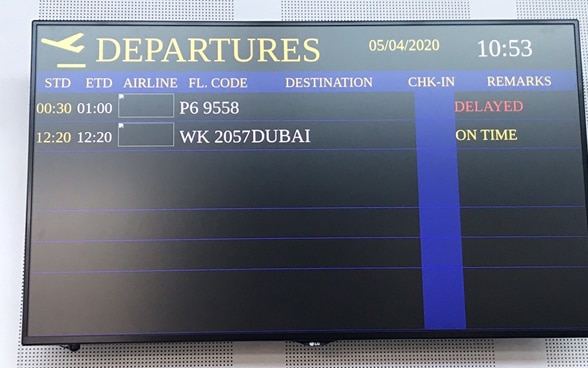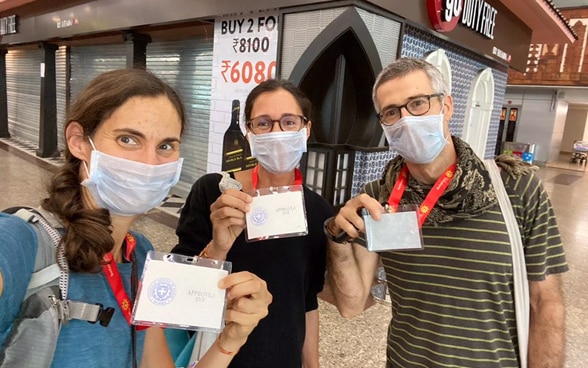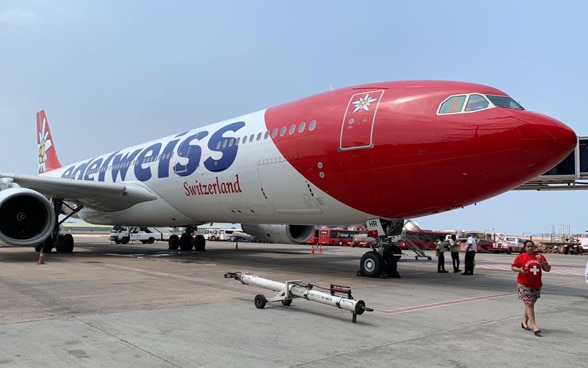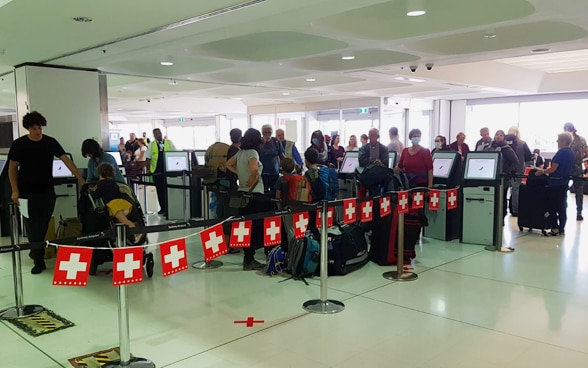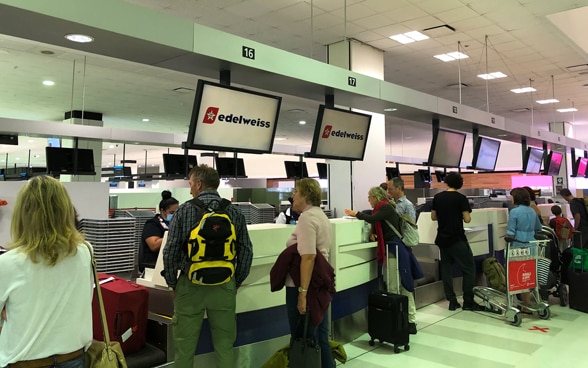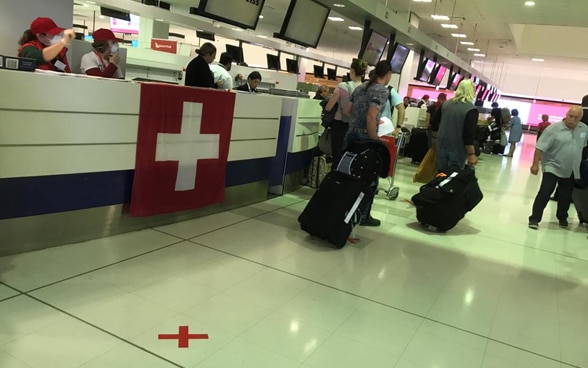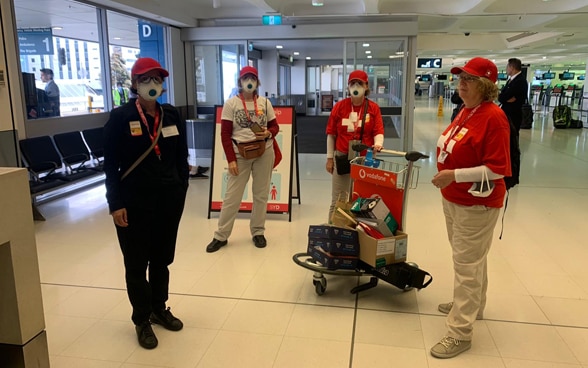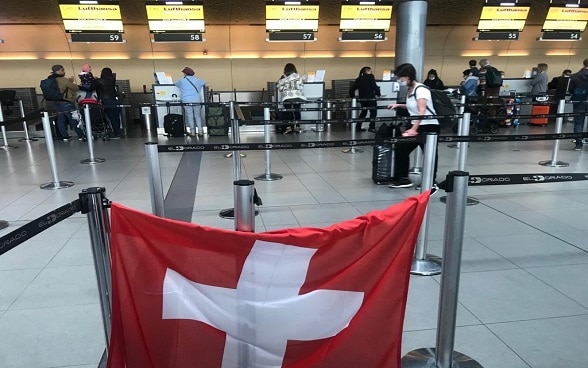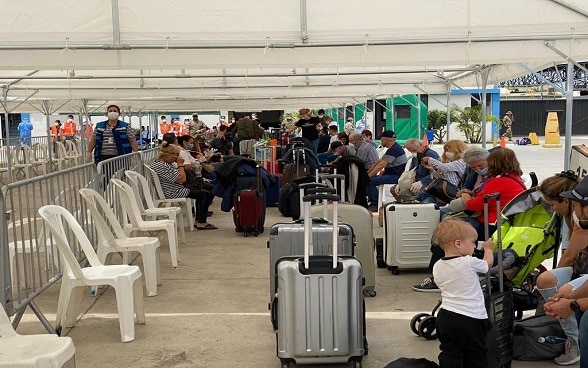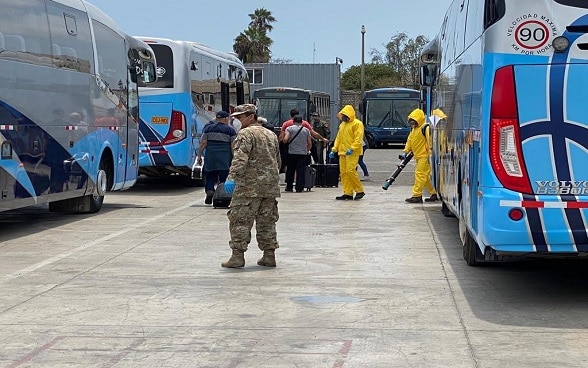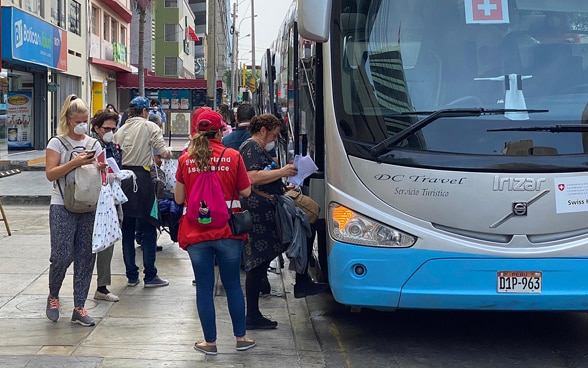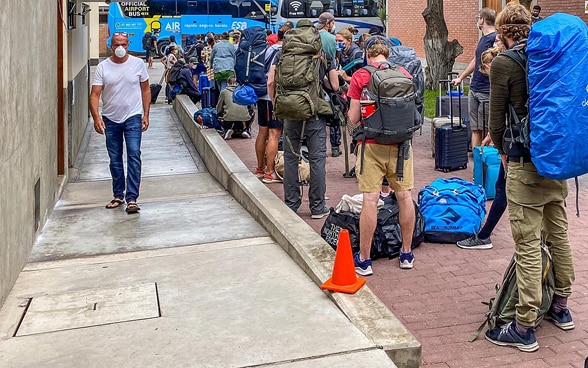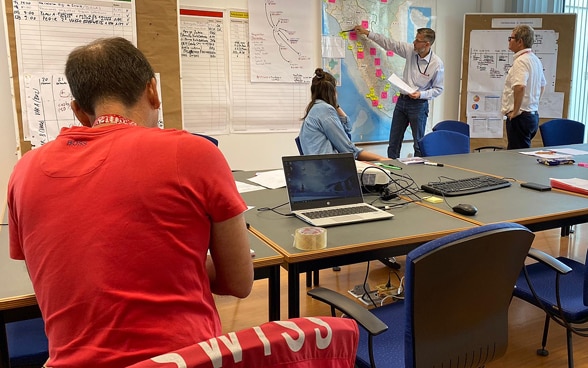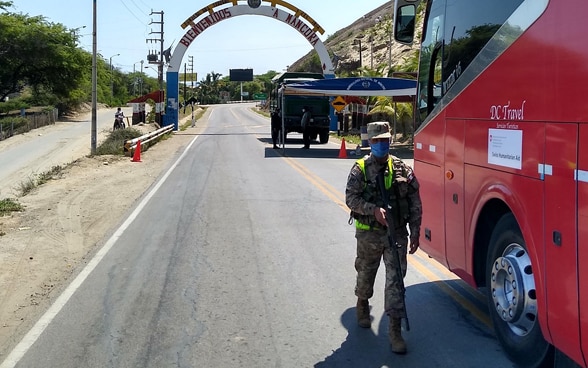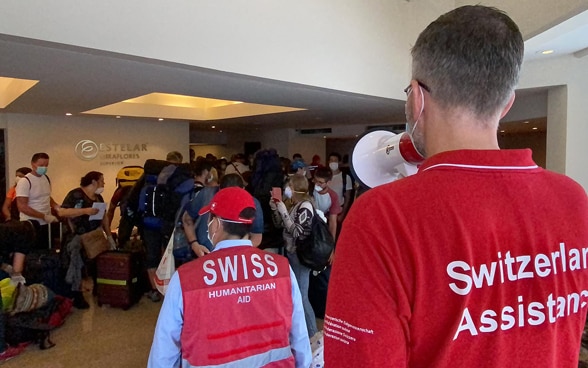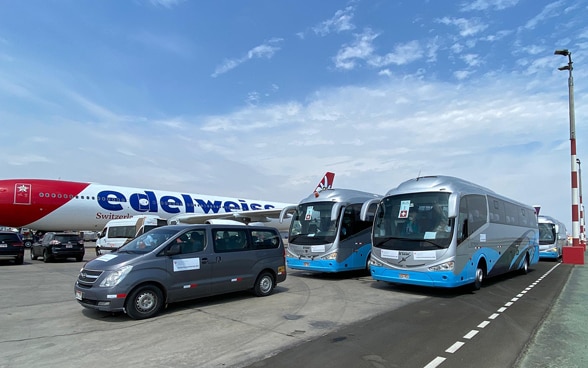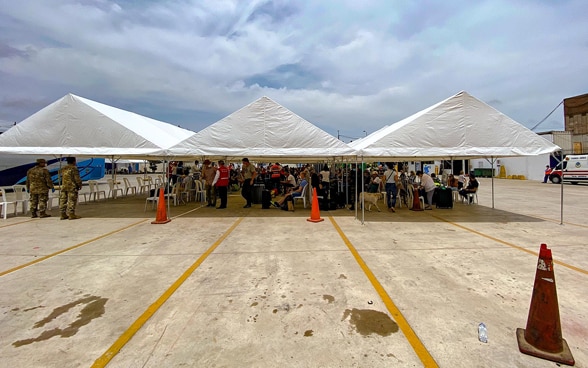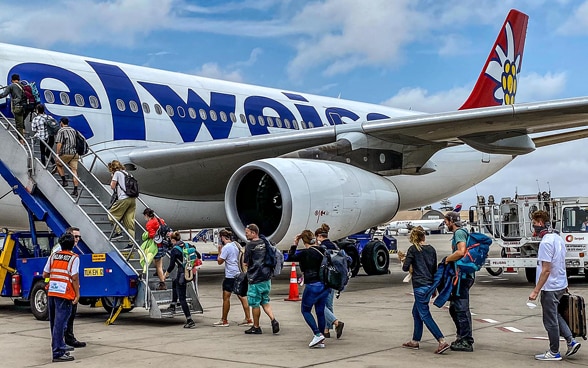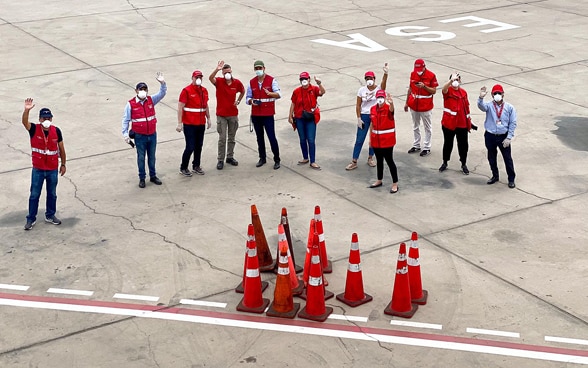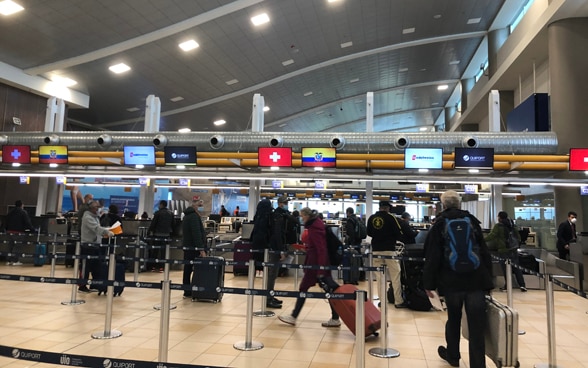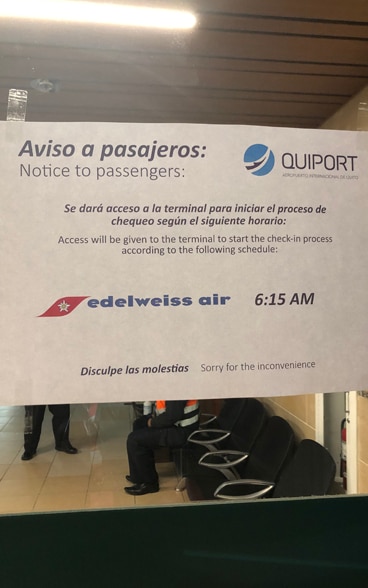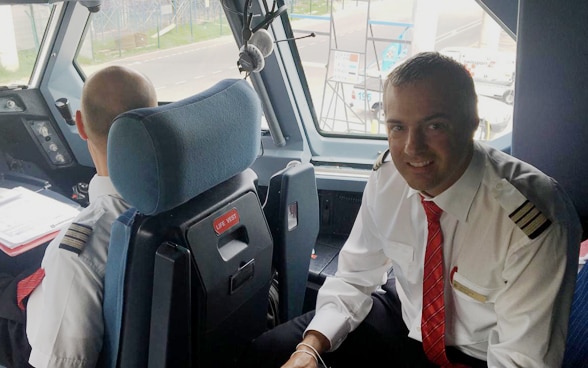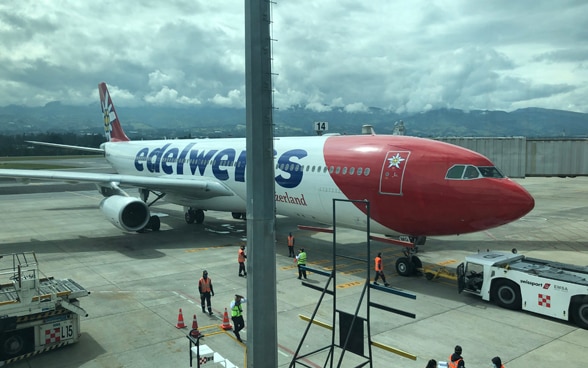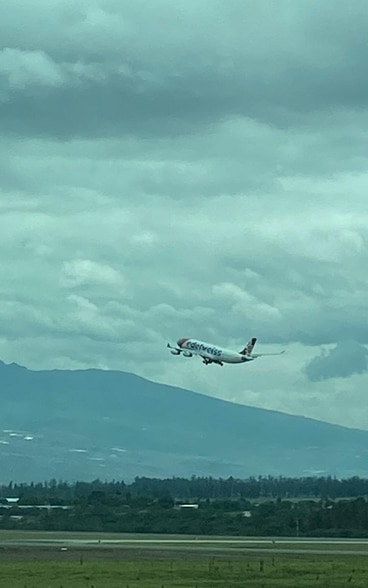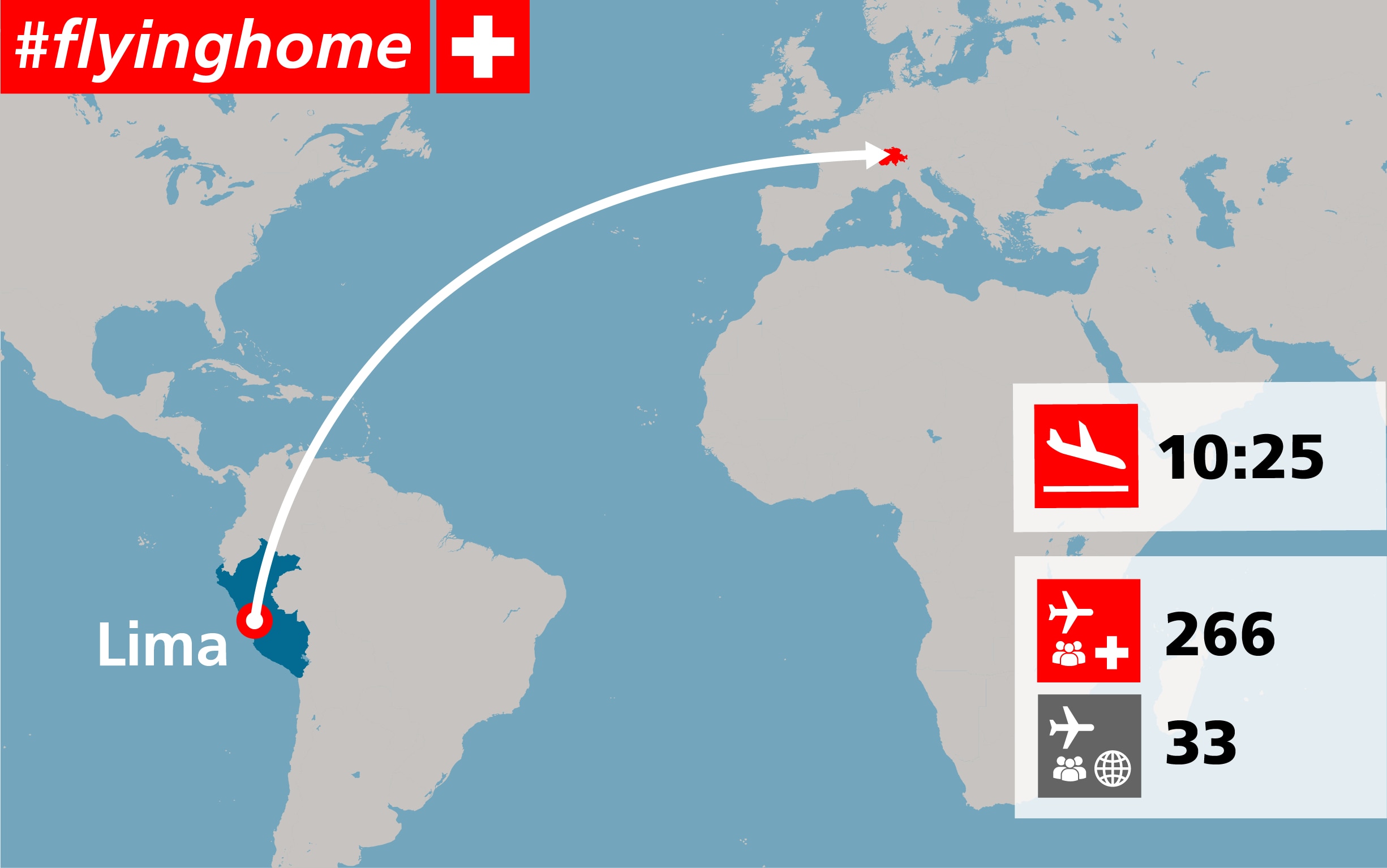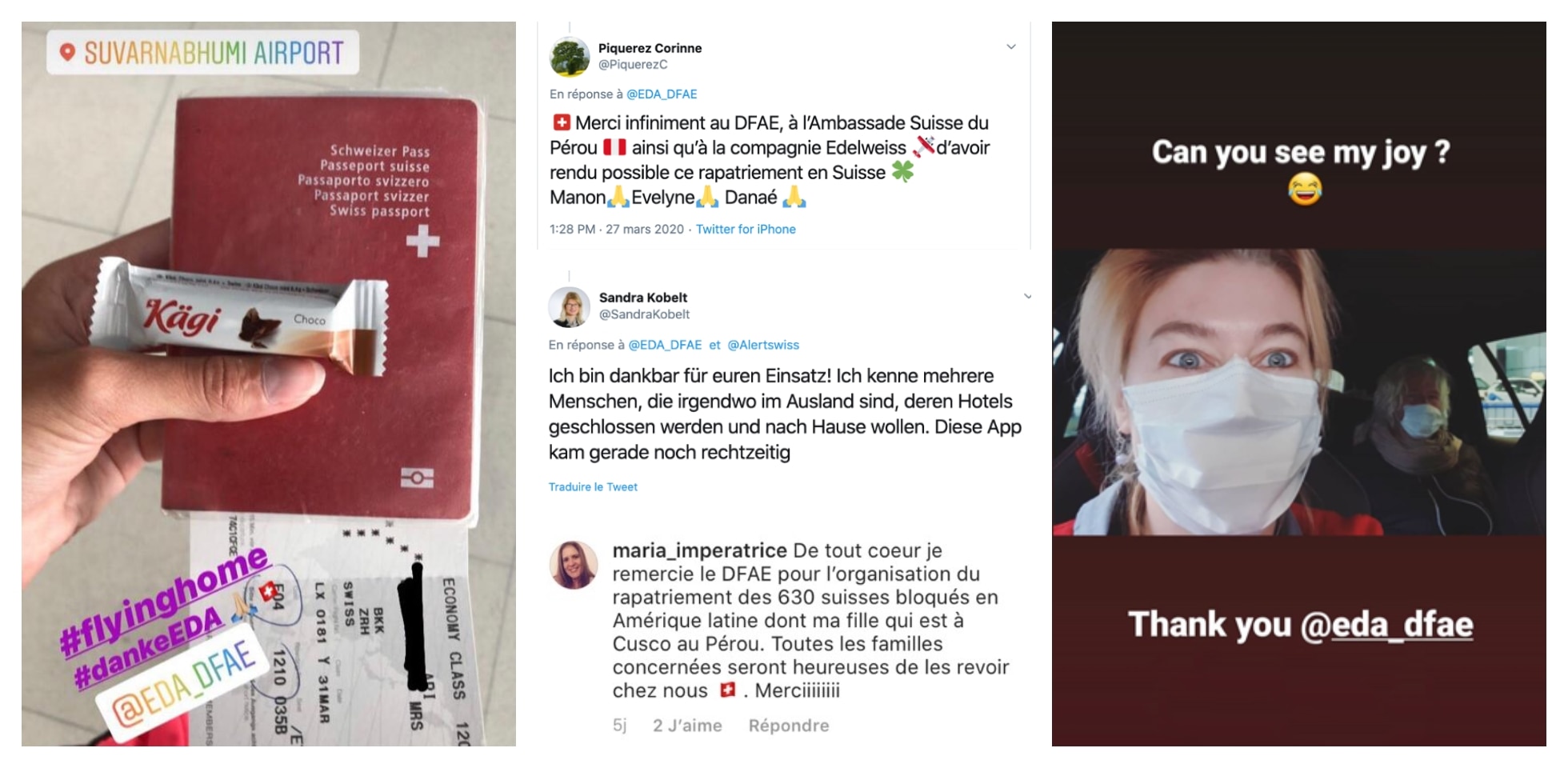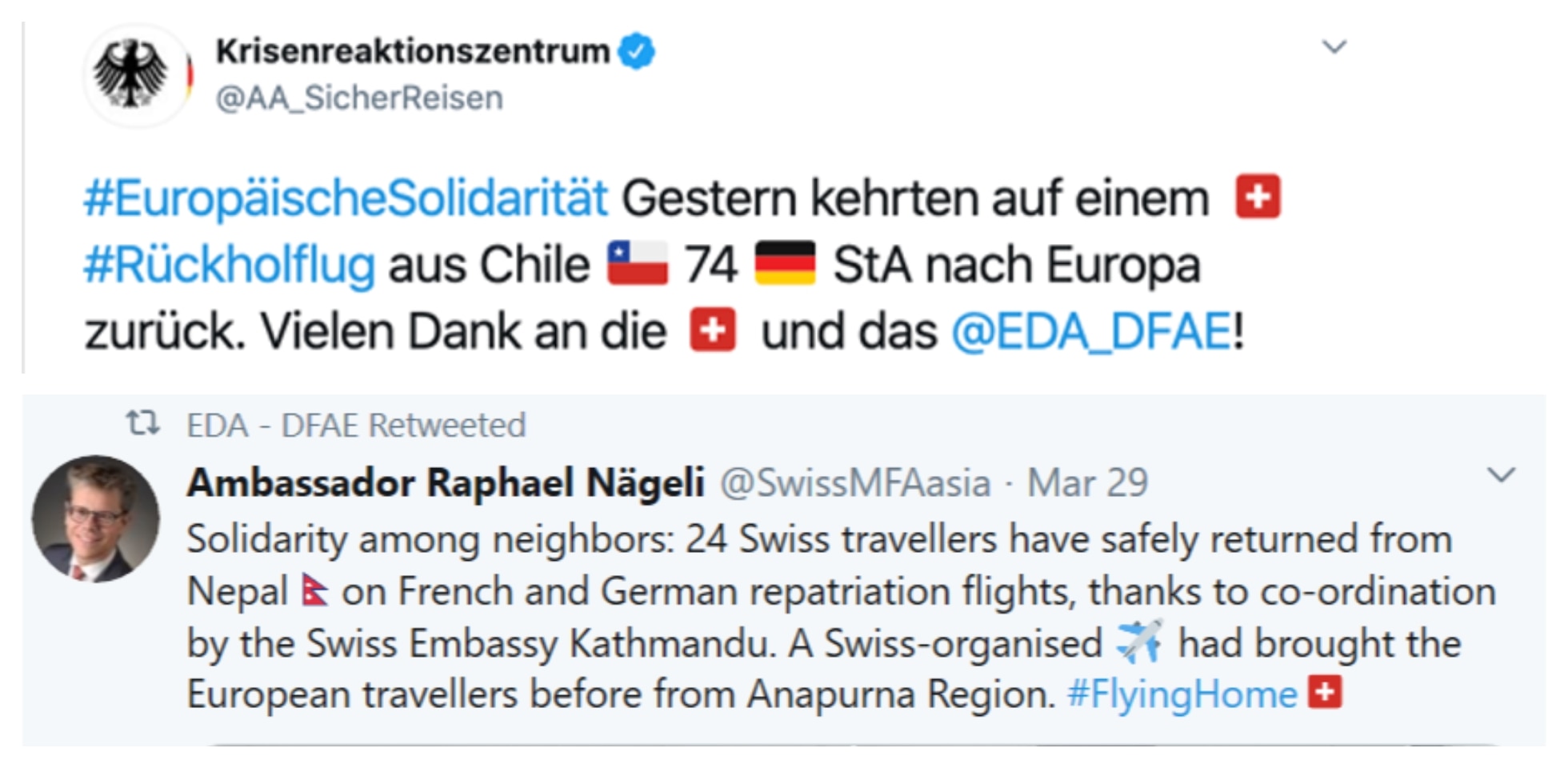Hanz-Peter Lenz at a press conference on 14 April 2020. © FDFA
Optimisation of flights by partner countries and FDFA return flights
"The FDFA's repatriation action is now focusing on strengthening cooperation with neighbouring countries," said Hans-Peter Lenz, head of the FDFA's Crisis Management Centre, during a press conference.
Phase 2 – in progress: optimisation of partner country flights and new FDFA repatriation flights
"Our goal is to ensure that flights operated by partner countries are full. The situation is under constant assessment," said Lenz.
To date – with the arrival of the flight from Lima on Tuesday morning – the FDFA has organised 29 repatriation flights, enabling 6,300 people to return home. Among them are about 3,700 Swiss nationals and more than 2,600 foreign nationals, mainly European, some of whom reside in Switzerland.
"In return, around 1,400 Swiss nationals have been repatriated by partner countries, mainly European," Lenz explained.
In parallel to stepping up its action with partner countries, the FDFA is organising additional repatriation flights. "Two flights are landing today in Switzerland, arriving from Lima and Kinshasa. A flight from Kyiv via Podgorica, Montenegro, is in the planning stages. Next week two flights are scheduled from Asia and Latin America."
Phase 3: consular assistance for citizens still stranded
"According to figures provided by Swiss embassies, there are still several hundred people stranded abroad," said Lenz. "But it isn't possible for Switzerland to repatriate everyone."
"In phase 3, Swiss embassies and missions will provide these people with consular assistance." There are some encouraging signs in the air: "The COVID-19 situation is developing positively in some parts of the world and commercial flights may resume soon."
Kinshasa: humanitarian aid combined with repatriation
A repatriation flight from the Democratic Republic of the Congo landed in Zurich on Tuesday. The flight, which enabled 200 Swiss and European travellers to return home, is a perfect illustration of a successful dual action based on solidarity but also the complexity of organising such a trip.
"Our embassy team on the ground did an excellent job. It was a colossal challenge to get our Swiss compatriots – who were stranded in a country in lockdown – to the airport on time. Our ambassador said on the plane this morning that he had never had to obtain so many special permits in such a short space of time, and that this was done thanks to the cooperation of the local authorities."
The day before, the outbound flight from Zurich to Kinshasa was used to transport humanitarian aid supplies donated by Switzerland, as part of its international cooperation, and also had on board staff of international organisations coming to assist the DRC in its response to the coronavirus crisis (see above).
"This example illustrates the major challenges that the FDFA constantly faces in a repatriation operation," said Lenz.

